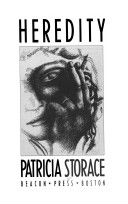124 Books Published by Beacon Press on AALBC — Book Cover Collage
 Forever for the Culture: Notes from the New Black Digital Arts Renaissance
Forever for the Culture: Notes from the New Black Digital Arts Renaissance
by Steven UnderwoodBeacon Press (Jan 27, 2026)
Read Detailed Book Description
The Curators of Culture: Celebrate Black digital art in this essay collection revealing how Black artists have shaped everything from TikTok dances to viral memes.
Steven Underwood digs into the current Black digital arts movement that has shaped popular culture for the last decade. He connects this current space to historical influences, speaking to a “legacy of audacity and daring that presented us with the opportunity to redirect the conversations on Blackness back on its center. Back to Black people.” Written as a collection of thought-provoking essays pulling in social commentary, interviews, popular culture, and deep research, Underwood taps into a topic that is incredibly relevant but often unknown.
The nature of the internet is so ephemeral that sometimes we forget when we do something worth celebrating. For Black people particularly, that’s unforgivable. Digital Black art has become increasingly more outspoken, introspective, and genre-defining. But it’s also vulnerable. Original phrases, tweets, dances, songs, and other content are often taken from a Black artist and attributed to a white influencer. And Black creators are paid less for their work, though their engagement is often higher than that of their white peers. There is also the added risk of backlash and hate that comes with publicly existing online. As an award-winning writer with a popular online presence, Underwood is no stranger to the experiences of Black digital artists. Using his own personal stories, he highlights the beauty, vulnerability, and innovation of the Black digital arts movement.
Shining a light on the curators of our culture, Forever for the Culture narratively follows the construction of a new Black art movement and how creators have defined a community when that community does not have a physical space.
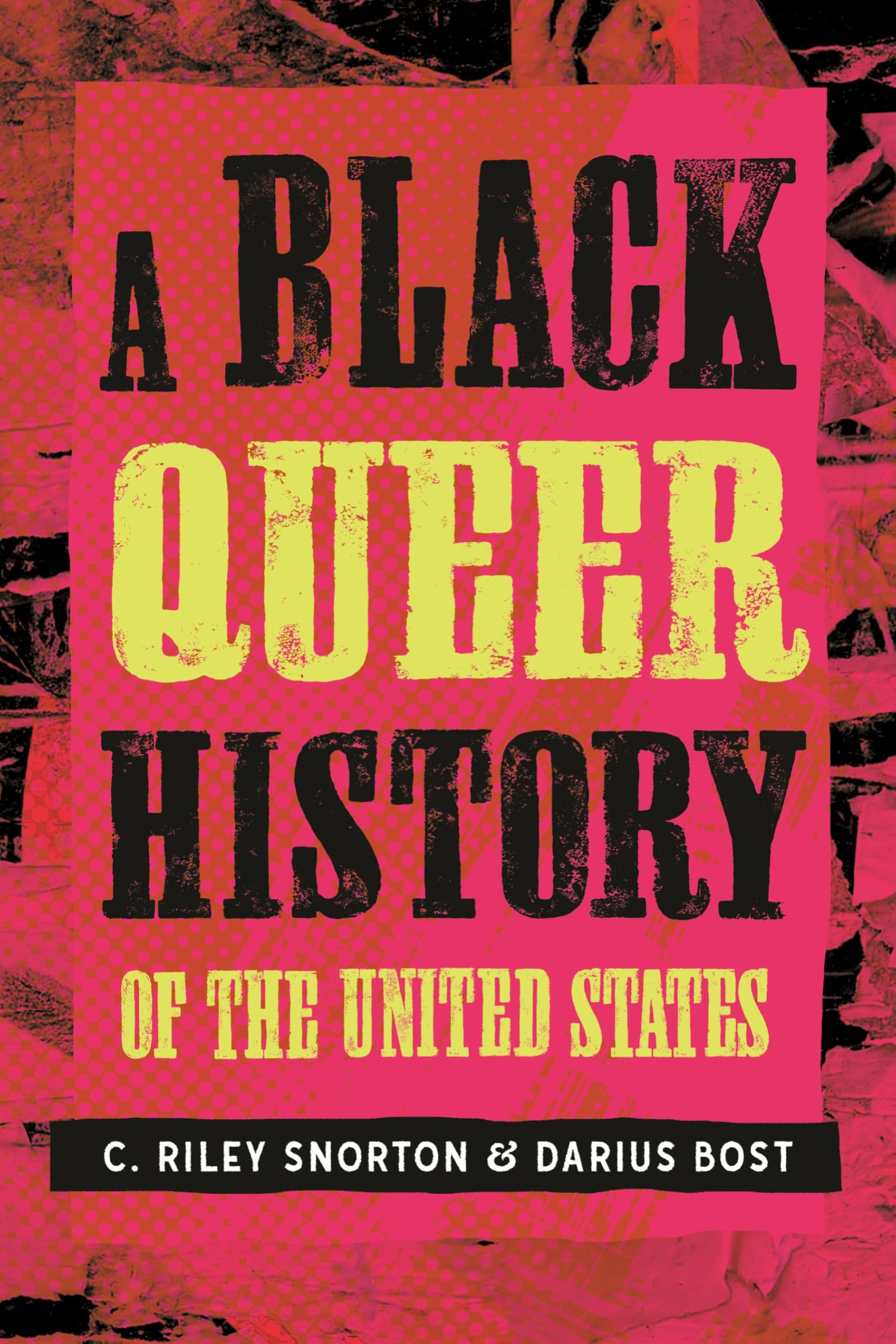 A Black Queer History of the United States
A Black Queer History of the United States
by C. Riley Snorton and Darius BostBeacon Press (Jan 20, 2026)
Read Detailed Book Description
The first-ever Black history to center queer voices, this landmark study traces the lives of LGBTQ+ Black Americans from slavery to present day.
Gender and sexual expression have always been part of the Black freedom struggle.
In this latest book in Beacon’s award-winning ReVisioning History series, Professors C. Riley Snorton and Darius Bost unearth the often overlooked history of the Black queer community in the United States.
Arguing that both gender and sexual expression have been an intimate and intricate part of the Black freedom struggle, Snorton and Bost present historical contributions of Black queer, trans, and gender non-conforming Americans from slavery to the present day to highlight how the fight against racial injustice has always been linked to that of sexual and gender justice.
Interweaving stories of queer and trans figures such as:
- Private William Cathay/Cathay Williams, born female but enlisted in the Army as a man in the mid-1860s
- Josephine Baker, internationally known dancer and entertainer of the early 20th century who was also openly bisexual
- Bayard Rustin, prominent Civil Rights activist whose well-known homosexuality was viewed as a potential threat to the movement
- Amanda Milan, a Black trans woman whose murder in 2000 unified the trans people of color community
This book includes a deep dive into the marginalization, unjust criminalization, and government legislation of Black queer and trans existence. It also shows how Black Americans have played an integral role in the modern LGBTQ rights movement, countering narratives that have predominantly focused on white Americans.
Through storytelling and other narratives, Snorton and Bost show how the Black queer community has always existed, regardless of the attempts to stamp it out, and how those in it continue to fight for their rightful place in the world.
 No Human Involved: The Serial Murder of Black Women and Girls and the Deadly Cost of Police Indifference
No Human Involved: The Serial Murder of Black Women and Girls and the Deadly Cost of Police Indifference
by Cheryl L. NeelyBeacon Press (Jan 13, 2026)
Read Detailed Book Description
An urgent examination of the invisibility of Black women and girls as victims of targeted killings, and the lack of police intervention and media coverage.
When Black women and girls are targeted and murdered their cases are often categorized by police officers as “N.H.I.” – “No Humans Involved.” Dehumanized and invisible to the public eye, they are rarely seen as victims. In the United States, Black women are killed at a higher rate than any other group of women, but their victimhood is not covered by the media and their cases do not receive an adequate level of urgency.
Utilizing intensive historical research of cases in cities such as Boston, Cleveland, Chicago, Detroit, and Los Angeles, Cheryl Neely calls attention to serial cases of Black female murder victims and a lack of police action. Neely approaches each case and story with detailed care. Instead of focusing solely on the killings and the murderers, she highlights the lives of the women and girls and their communities that never stopped fighting for justice. With media neglect and police indifference, Neely argues that because law enforcement is less likely to conduct serious investigations into the disappearances and homicides of Black women, they are particularly vulnerable to become victims.
Diving deep into the unseen and unheard, Neely uses personal interviews, court records, media reports, and analytical data to understand how and why Black women are disproportionately more likely to die from homicide in comparison to their white counterparts. Sounding an urgent alarm, No Human Involved contends that it is time for Black women’s lives to matter not only to their families and communities, but especially to those commissioned to protect them.
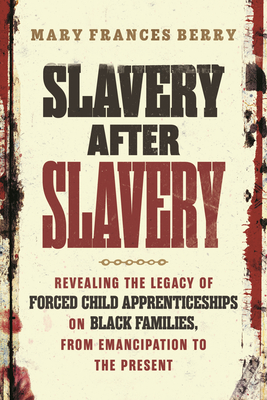 Slavery After Slavery: Revealing the Legacy of Forced Child Apprenticeships on Black Families, from Emancipation to the Present
Slavery After Slavery: Revealing the Legacy of Forced Child Apprenticeships on Black Families, from Emancipation to the Present
by Mary Frances BerryBeacon Press (Jan 13, 2026)
Read Detailed Book Description
An acclaimed historian narrates the stories of newly emancipated children who were re-enslaved by white masters through apprenticeships—and their parents’ fights to free them.
While the Thirteenth Amendment abolished slavery, white southerners established a system of apprenticeship after the Civil War that entrapped Black children and their families, leading to undue hardships for generations to come. In Slavery After Slavery, historian Mary Frances Berry traces the stories behind individual cases from southern supreme courts to demonstrate how formerly enslaved families and their descendants were systemically injured through white supremacist practices, perpetuated by the legal system.
By filling in the family trees of formerly enslaved people to their descendants, Berry documents the intergenerational harm they experienced. The resulting damage of trafficking Black children through apprenticeship laws has been a largely overlooked source of inequality, yet these cases provide specific examples of the kind of economic and physical harm Black families have endured.
Slavery After Slavery tells individual stories, but the fates of their descendants tell our collective American story—contributing powerfully to a case for reparations and restorative justice.
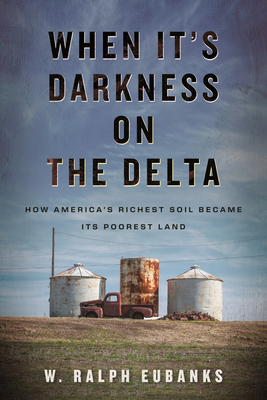 When Itís Darkness on the Delta: How Americaís Richest Soil Became Its Poorest Land
When Itís Darkness on the Delta: How Americaís Richest Soil Became Its Poorest Land
by W. Ralph EubanksBeacon Press (Jan 13, 2026)
Read Detailed Book Description
For readers of The Sum of Us and South to America, an essential new look at the roots of American inequality—and the seeds of its transformation.
Once the powerhouse of a fledgling country’s economy, the Mississippi Delta has been consigned to a narrative of destitution. It is often faulted for the sins of the South, portrayed as a regional backwater that willfully cleaved itself from the modern world. But buried beneath the weight of good ol’ boy politics and white-washed histories lies the Delta’s true story.
W. Ralph Eubanks, a Mississippi native and award-winning writer, digs through this loamy topsoil, revealing a microcosm of economic oppression in the US. He traverses the Delta, examining its bellwether efforts to combat income inequality, and introduces people like:
- Theodore G. Bilbo and William Whittington, segregationist congressmen who sabotaged federal reparations for former sharecroppers in the 1940s and ’50s
- Gloria Carter Dickerson, founder of the Emmett Till Academy, whose parents were instrumental in desegregating schools in Drew, MS, where Till was murdered
- Calvin Head, a community organizer who runs a farming co-op in Mileston and revived the legacy of his hometown, the only Black resettlement community in Mississippi
With clear-eyed analysis and heart-rending prose, Eubanks exhumes a rich seedbed of racist political machinations and economic turmoil. Yet scattered within, yearning for transformation and reinvention, are the undying seeds of the oppressed. Their thirst, Eubanks argues, is one that can be quenched by thoughtful policymaking—and by investing in the very people whose ancestors tilled such fertile land.
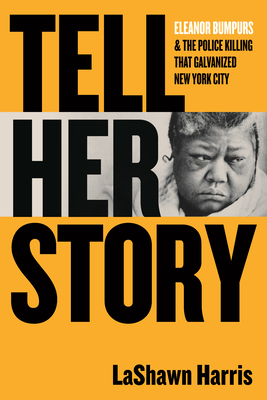 Tell Her Story: Eleanor Bumpurs & the Police Killing That Galvanized New York City
Tell Her Story: Eleanor Bumpurs & the Police Killing That Galvanized New York City
by LaShawn HarrisBeacon Press (Aug 26, 2025)
Read Detailed Book Description
The life and 1984 murder of a beloved Black grandmother that changed community activism forever—and sparked the ongoing movement against racist policing and brutality
#SayHerName: The story of Eleanor Bumpurs, told for the first time by decorated historian and Bumpurs’s former neighbor LaShawn Harris
On October 29, 1984, 66-year-old beloved Black disabled grandmother Eleanor Bumpurs was murdered in her own home. A public housing tenant four months behind on rent, Ms. Bumpurs was facing eviction when white NYPD officer Stephen Sullivan shot her twice with a 12-gauge shotgun. LaShawn Harris, 10 years old at the time, felt the aftershocks of the tragedy in her community well beyond the four walls of her home across the street.
Now an award-winning historian, Harris uses eyewitness accounts, legal documents, civil rights pamphlets, and more to look through the lens of her childhood neighbor’s life and death. She renders in a new light the history of anti-Black police violence and of the watershed anti-policing movement Eleanor Bumpurs’s murder birthed.
So many Black women’s lives have been stolen since—Deborah Danner, Sandra Bland, Breonna Taylor, Sonya Massey—and still more are on the line. This deeply researched, intimate portrait of Eleanor Bumpurs’s life and legacy highlights how one Black grandmother’s brutal police murder galvanized an entire city. It also shows how possible and critical it is to stand together against racist policing now.
 Boy Maybe: Poems
Boy Maybe: Poems
by W. J. LoftonBeacon Press (Mar 25, 2025)
Read Detailed Book Description
51 achingly eloquent poems from a young Cave Canem fellow: W. J. Lofton’s verses explore Black queer Southern identity, grief, love, and intimacy while enduring and witnessing unfreedom in America.
W. J. Lofton writes vivid, accessible poems that channel the energy, urgency, ambitions, joys, and sorrows of a young Black queer artist. They are about love and flirtation, sweet tea and hot sauce, God and family, life and death, police brutality and extrajudicial killings. His verses honor some of the young lives extinguished by these killings—Breonna Taylor, Kendrick Johnson, Ahmaud Arbery. He also pays tribute to some of the towering figures of Black culture who have come before him—Richard Pryor, Assata Shakur. His style is endlessly propulsive, informed by some of the Harlem Renaissance greats—Langston Hughes, Gwendolyn Brooks—but also transforming that rich tradition for the present day.
 Here I Stand
Here I Stand
by Paul RobesonBeacon Press (Feb 04, 2025)
Read Detailed Book Description
The powerful memoir of the most celebrated and blacklisted Black American of the 20th century—offering a defiant challenge to the prevailing fear and racism that continues to characterize American society.
A limited Beacon Classics edition, with a gorgeous spot gloss cover and retro, classic palette.
Paul Robeson recounts his journey from star athlete to esteemed actor, singer, and civil rights activist, and the racism and political persecution he faced that attempted to silence him. In the first half of the 20th century, Robeson’s international achievements in starring roles on stage and screen made him the most celebrated Black American of his day. But his outspoken criticism of racism in the United States, his strong support of African independence, and his fascination with the Soviet Union placed him under the debilitating scrutiny of McCarthyism.
A bold answer to his accusers, Here I Stand details how the challenges Robeson faced only strengthened his resolve to fight against injustice. In our own time of increased scrutiny and attempts to limit people’s right to protest, Robeson’s unwavering courage and commitment to his principles offer an inspiring model for how we all must continue to stand up for what we believe in.
Here I Stand is not simply a memoir, but a testament to the enduring spirit of resilience and resistance in the face of adversity.
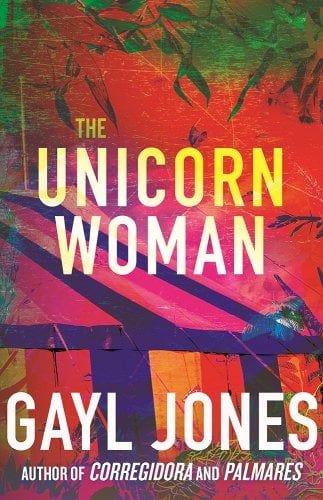 The Unicorn Woman
The Unicorn Woman
by Gayl JonesBeacon Press (Aug 20, 2024)
Read Detailed Book Description
Marking a dramatic new direction for Jones, a riveting tale set in the Post WWII South, narrated by a Black soldier who returns to Jim Crow and searches for a mythical ideal
Set in the early 1950s, this latest novel from Pulitzer Prize and National Book Award finalist Gayl Jones follows the witty but perplexing army veteran Buddy Ray Guy as he embodies the fate of Black soldiers who return, not in glory, but into their Jim Crow communities.
A cook and tractor repairman, Buddy was known as Budweiser to his army pals because he’s a wise guy. But underneath that surface, he is a true self-educated intellectual and a classic seeker: looking for religion, looking for meaning, looking for love.
As he moves around the south, from his hometown of Lexington, Kentucky, primarily, to his second home of Memphis, Tennessee, he recalls his love affairs in post-war France and encounters with a variety of colorful characters and mythical prototypes: circus barkers, topiary trimmers, landladies who provide shelter and plenty of advice for their all-Black clientele, proto feminists, and bigots. The lead among these characters is, of course, The Unicorn Woman, who exists, but mostly lives in Bud’s private mythology.
Jones offers a rich, intriguing exploration of Black (and Indigenous) people in a time and place of frustration, disappointment, and spiritual hope.
 Encounter on the Seine: Essays
Encounter on the Seine: Essays
by James BaldwinBeacon Press (Aug 06, 2024)
Read Detailed Book Description
“James Baldwin was born for truth. It called upon him to tell it on the mountains, to preach it in Harlem, to sing it on the Left Bank in Paris … He was a giant.”—Maya Angelou
This collectible edition celebrates James Baldwin’s 100th-year anniversary, delving into his years in France and Switzerland.
Originally published in Notes of a Native Son, the essays “Encounter on the Seine: Black Meets Brown,” “A Question of Identity,” “Equal in Paris,” and “Stranger in the Village” will appeal to readers interested in Baldwin’s observations as a Black man overseas.
During his transformative time in Europe, Baldwin uncovers what it means to be American, immersing the reader in his life as a foreigner, his troubling encounter with a Parisian prison, and his unprecedented arrival to a tiny Swiss village.
This final collection in the Baldwin centennial anniversary series raises issues of identity, belonging, nationhood, and race within a global context. Encounter on the Seine: Essays showcases Baldwin’s strengths as a storyteller, revealing how his years in Paris transformed his understanding of American identity.
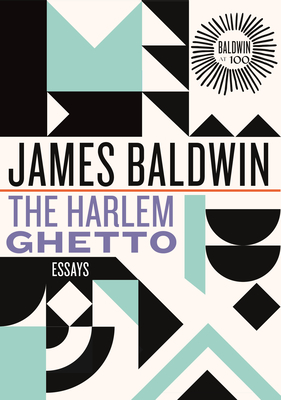 The Harlem Ghetto: Essays
The Harlem Ghetto: Essays
by James BaldwinBeacon Press (Jul 02, 2024)
Read Detailed Book Description
This collectible edition celebrates James Baldwin’s 100th-year anniversary, revealing and critiquing the realities of Black life in mid-century US.
Originally published in Notes of a Native Son, the essays “The Harlem Ghetto,” “Journey to Atlanta,” and “Notes of a Native Son” will appeal to those interested in the personal and political turmoil of Baldwin’s life.
“The Harlem Ghetto” introduces readers to the extremities of life in Baldwin’s native city. “Journey to Atlanta” depicts the faulty relationship between the Black community and the politician, following a quartet called The Melodeers on a trip to Atlanta under the auspices of the Progressive Party. Baldwin concludes this collection with “Notes of A Native Son,” a powerful autobiographical essay about his fractured relationship with his father.
The Harlem Ghetto: Essays explores the American condition through a mix of analytic and autobiographical essays. This second collection in the Baldwin centennial anniversary series is Baldwin’s most personal as he grapples with his childhood and his own affinity with Blackness.
 Everybodyís Protest Novel: Essays
Everybodyís Protest Novel: Essays
by James BaldwinBeacon Press (Jun 04, 2024)
Read Detailed Book Description
“I am completely indebted to Jimmy Baldwin’s prose. It liberated me as a writer.”—Toni Morrison
This collectible edition celebrates James Baldwin’s 100th-year anniversary, probing the shortcomings of the American protest novel and the harmful representations of Black identity in film and fiction.
Originally published in Notes of a Native Son, the essays “Autobiographical Notes,” “Everybody’s Protest Novel,” “Many Thousands Gone,” and “Carmen Jones: The Dark is Light Enough,” showcase Baldwin’s incisive voice as a social and literary critic.
“Autobiographical Notes” outlines Baldwin’s journey as a Black writer and his hesitant transition from fiction to nonfiction. In the following essays, Baldwin explores the Black experience through the lens of popular media, critiquing the ways in which Black characters—in Harriet Beecher Stowe’s novel Uncle Tom’s Cabin, Richard Wright’s novel Native Son, and the 1950s film Carmen Jones—are reduced to digestible caricatures.
Everybody’s Protest Novel: Essays is the first of 3 special editions in the James Baldwin centennial anniversary series. Through this collection, Baldwin examines the faÁade of progress present in the novels of Black oppression. These essays showcase Baldwin’s profound ability to reveal the truth of the Black experience, exposing the failure of the protest novel, and the state of racial reckoning at the dawn of the Civil Rights Movement.
 Watershed (2024)
Watershed (2024)
by Percival EverettBeacon Press (Mar 05, 2024)
Read Detailed Book Description
A rediscovered classic of politics, murder, espionage, for the first time in paperback
On a windswept landscape somewhere north of Denver, Robert Hawks, a feisty and dangerously curious hydrologist, finds himself enmeshed in a fight over Native American treaty rights. What begins for Robert as a peaceful fishing interlude ends in murder and the disclosure of government secrets.
Introduced by Sherman Alexie, who has taken a film option on the novel, this important novel is published in paperback for the first time.
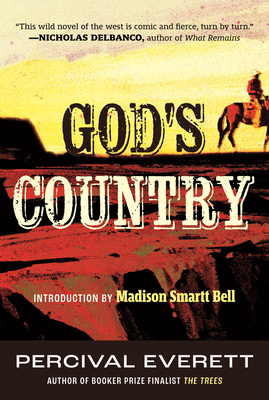 Godís Country (2024)
Godís Country (2024)
by Percival EverettBeacon Press (Mar 05, 2024)
Read Detailed Book Description
The unlikely narrator through this tale of misadventures is one Curt Marder: gambler, drinker, cheat, and would-be womanizer. It’s 1871, and he’s lost his farm, his wife, and his dog to a band of marauding hooligans. With nothing to live on but a desire to recover what is rightfully his, Marder is forced to enlist the help of the best tracker in the West: a black man named Bubba.
 Twice as Hard: The Stories of Black Women Who Fought to Become Physicians, from the Civil War to the 21st Century
Twice as Hard: The Stories of Black Women Who Fought to Become Physicians, from the Civil War to the 21st Century
by Jasmine BrownBeacon Press (Jan 23, 2024)
Read Detailed Book Description
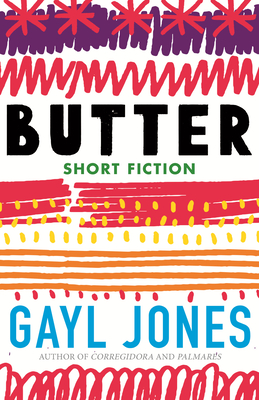 Butter: Novellas, Stories, and Fragments
Butter: Novellas, Stories, and Fragments
by Gayl JonesBeacon Press (Apr 04, 2023)
Read Detailed Book Description
A wide-ranging collection, including two novellas and ten stories exploring complex identities, from the acclaimed author of Corregidora, The Healing, and Palmares.
”Gayl Jones’s work represents a watershed in American literature. From a literary standpoint, her form is impeccable … and as a Black woman writer, her truth-telling, filled with beauty, tragedy, humor, and incisiveness, is unmatched.”
—Imani Perry, author of Looking for Lorraine and Breathe
Gayl Jones, who was first edited by Toni Morrison, has been described as one of the great literary writers of the 20th century and was recently a finalist for the Pulitzer Prize in fiction. This new collection of short fiction is only the second in her rich career and one that displays her strengths in the genre in many facets. Opening with two novella-length works, “Butter” and “Sophia,” this collection features Jones’s legendary talents in a range of settings and styles, from the hyperrealist to the mystical, in intricate multipart stories, in more traditional forms, and even in short fragments.
Her narrators are women and men, Black, Brown, Indigenous; her settings are historical and contemporary, in South America, Mexico, and the US; her themes center on complex identities, unorthodox longings and aspirations. She writes about spies, photographers, playground designers, cartoonists, and baristas; about workers and revolutionaries, about environmentalism, feminism, poetry, film, and love, but above all about our multicultural, multiethnic, and multiracial society.
 Meditations of the Heart
Meditations of the Heart
by Howard ThurmanBeacon Press (Jan 31, 2023)
Read Detailed Book Description
“As poet, prophet, and priest, Thurman builds upon a powerful legacy of ancestral hope: belief in a liberating God who can always be found ‘in and among the struggling.’”
—Yolanda Pierce
A universal beacon of hope and endurance for people of all faiths seeking to meet the challenges, uncertainties, and joys of life
Howard Thurman’s Meditations of the Heart is a beautiful collection of over 150 prayers, poems, and meditations on prayer, community, and the joys and rituals of life by one of our greatest spiritual leaders. Thurman, a spiritualist and mystic, was renowned for the quiet beauty of his reflections on humanity and our relationship with God.
In a new foreword, Yolanda Pierce, dean of Howard University’s School of Divinity, calls attention to the justice-centered theological framework of Thurman’s words. Pierce notes how Thurman brings to light an image of God who can always be found “in and among the struggling,” both in times of weariness and in strength.
First written for and shared with his congregation of the Church for the Fellowship of All Peoples in San Francisco, California, these meditations sustain, elevate, and inspire. They are a universal beacon of hope and endurance for people of all faiths seeking to meet the challenges, uncertainties, and joys of everyday life with a renewed and liberating faith.
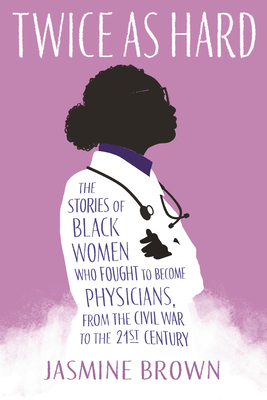 Twice as Hard: The Stories of Black Women Who Fought to Become Physicians, from the Civil War to the 21st Century
Twice as Hard: The Stories of Black Women Who Fought to Become Physicians, from the Civil War to the 21st Century
by Jasmine BrownBeacon Press (Jan 24, 2023)
Read Detailed Book Description
Black women physicians’ stories have gone untold for far too long, leaving gaping holes in American medical history, in women’s history, and in black history. It’s time to set the record straight
No real account of black women physicians in the US exists, and what little mention is made of these women in existing histories is often insubstantial or altogether incorrect. In this work of extensive research, Jasmine Brown offers a rich new perspective, penning the long-erased stories of nine pioneering black women physicians beginning in 1860, when a black woman first entered medical school. Brown champions these black women physicians, including the stories of:
· Dr. Rebecca Lee Crumpler, who graduated from medical school only fourteen months after the Emancipation Proclamation was signed and provided medical care for the newly freed slaves who had been neglected and exploited by the medical system.
· Dr. Edith Irby Jones, the first African American to attend a previously white-only medical school in the Jim Crow South, where she was not allowed to eat lunch with her classmates or use the women’s bathroom. Still, Dr. Irby Jones persisted and graduated from medical school, going on to directly inspire other black women to pursue medicine such as …
· Dr. Joycelyn Elders, who, after meeting Dr. Irby Jones, changed her career ambitions from becoming a Dillard’s salesclerk to becoming a doctor. In 1993, President Bill Clinton appointed Dr. Elders as the US surgeon general, making her the first African American and second woman to hold this position.
Brown tells the stories of these doctors from the perspective of a black woman in medicine. Her journey as a medical student already has parallels to those of black women who entered medicine generations before her. What she uncovers about these women’s struggles, their need to work twice as hard and be twice as good, and their ultimate success serves as instruction and inspiration for new generations considering a career in medicine or science.
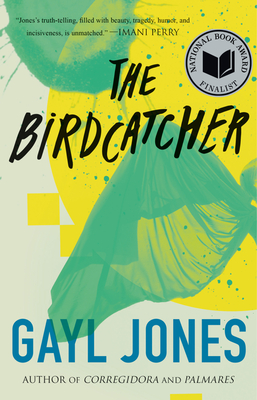 The Birdcatcher
The Birdcatcher
by Gayl JonesBeacon Press (Sep 13, 2022)
Read Detailed Book Description
Publishers Weekly Top 10 BEST BOOKS OF 2022
“Gayl Jones’s work represents a watershed in American literature.”
—Imani Perry
Legendary writer Gayl Jones returns with a stunning new novel about Black American artists in exile
Gayl Jones, the novelist Toni Morrison discovered decades ago and Tayari Jones recently called her favorite writer, has been described as one of the great literary writers of the 20th century. Now, for the first time in over 20 years, Jones is publishing again. In the wake of her long-awaited fifth novel, Palmares, The Birdcatcher is another singular achievement, a return to the circles of her National Book Award finalist, The Healing.
Set primarily on the island of Ibiza, the story is narrated by the writer Amanda Wordlaw, whose closest friend, a gifted sculptor named Catherine Shuger, is repeatedly institutionalized for trying to kill a husband who never leaves her. The three form a quirky triangle on the white-washed island.
A study in Black women’s creative expression, and the intensity of their relationships, this work from Jones shows off her range and insight into the vicissitudes of all human nature - rewarding longtime fans and bringing her talent to a new generation of readers.
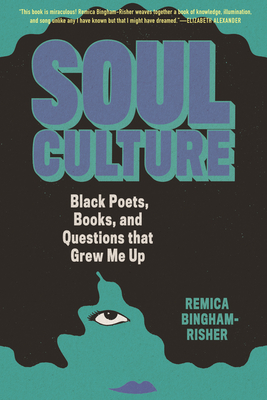 Soul Culture: Black Poets, Books, and Questions That Grew Me Up
Soul Culture: Black Poets, Books, and Questions That Grew Me Up
by Remica Bingham-RisherBeacon Press (Sep 06, 2022)
Read Detailed Book Description
Examines firsthand the lives of legendary Black writers who made a way out of no way to illuminate a road map for budding creators desiring to follow in their footsteps
Acclaimed Cave Canem poet and essayist Remica Bingham-Risher interweaves personal essays and interviews she conducted over a decade with 10 distinguished Black poets, such as Lucille Clifton, Sonia Sanchez, and Patricia Smith, to explore the impact of identity, joy, love, and history on the artistic process. Each essay is thematically inspired, centered on one of her interviews, and uses quotes drawn from her talks to showcase their philosophies. Each essay also delves into how her own life and work are influenced by these elders. Essays included are these:
· “blk/wooomen revolution”
· “Girls Loving Beyoncé and Their Names”
· “The Terror of Being Destroyed”
· “Standing in the Shadows of Love”
· “Revision as Labyrinth”
Noting the frustrating tendency for Black artists to be pigeonholed into the confines of various frameworks and ideologies—Black studies, women’s studies, LGBTQIA+ studies, and so on—Bingham-Risher reveals the multitudes contained within Black poets, both past and present. By capturing the radical love ethic of Blackness amid incessant fear, she has amassed not only a wealth of knowledge about contemporary Black poetry and poetry movements but also brings to life the historical record of Black poetry from the latter half of the 20th century to the early decades of the 21st.
Examining cultural traditions, myths, and music from the Four Tops to Beyoncé, Bingham-Risher reflects on the enduring gifts of art and community. If you’ve ever felt alone on your journey into the writing world, the words of these poets are for you.
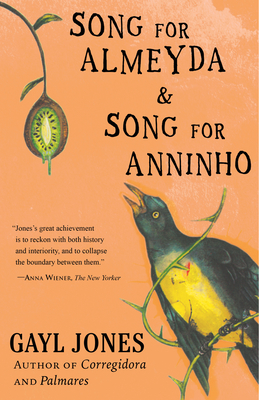 Song for Almeyda and Song for Anninho
Song for Almeyda and Song for Anninho
by Gayl JonesBeacon Press (Apr 05, 2022)
Read Detailed Book Description
From the highly acclaimed author of Corregidora and The Healing—two epic poems, the love songs of fugitive slaves, set in 17th-century Brazil; continuing the unforgettable journey told in Gayl Jones’s masterwork, Palmares (2021).
Gayl Jones, the novelist Toni Morrison discovered decades ago and Tayari Jones recently called her favorite writer, offers two books in one with this volume of poetry. Jones renders the saga of Palmares, a foundational tale in the annals of colonial terrorism and Black resistance, in verse, told in the voices of the characters in her epic novel Palmares.
In the late 17th century, the fugitive slave enclave of Palmares was destroyed by Portuguese colonists. Amid the flight and re-enslavement of Palmares’s inhabitants emerges the love story of Almeyda and Anninho. In Song for Anninho, Almeyda moves between a dark present, in which she is once again enslaved and abused by a terrible captor, and memories of her lover, Anninho, whom she believes to have been killed. Song for Almeyda, released now for the first time, is told in the voices of Anninho and his fellow warriors.
Fans of Corregidora (one of the New Yorker’s “Best Books We Read in 2020” picks), which tracked the legacy of enslavement, and Palmares will especially appreciate these verses. Brimming with intimacy, history, and revolution, the poems collected serve as a declaration of decolonial love.
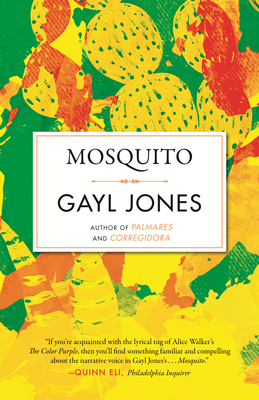 Mosquito
Mosquito
by Gayl JonesBeacon Press (Feb 15, 2022)
Read Detailed Book Description
Bury those easy-to-read Black romance books. Mosquito is where African-American literature is heading as we approach the twenty-first century. —E. Ethelbert Miller, Emerge
From the highly acclaimed author of Palmares, Corregidora, and The Healing—a rare and unforgettable journey set along the US-Mexico border about identity, immigration, and “the new underground railroad.”
First discovered and edited by Toni Morrison, Gayl Jones has been described as one of the great literary writers of the 20th century. In Mosquito, she examines the US-Mexico border crisis through the eyes of Sojourner Nadine Jane Johnson, an African American truck driver known as Mosquito. Her journey begins after she discovers a stowaway who nearly gives birth in the back of her truck, sparking Mosquito’s accidental yet growing involvement in “the new underground railroad,” a sanctuary movement for Mexican immigrants.
As Mosquito’s understanding of the immigrants’ need to forge new lives and identities deepens, so too does Mosquito’s romance with Ray, a gentle revolutionary, a philosopher, and, perhaps, a priest. Along the road, Mosquito introduces us to Delgadina, a Chicana bartender who fries cactus, writes haunting stories, and studies to become a detective; Monkey Bread, a childhood pal who is, improbably, assistant to a blonde star in Hollywood; Maria, the stowaway who names her baby Journal, a misspelled tribute to her unwitting benefactor Sojourner; and many more.
”Gayl Jones is the black writer we all want to be when we grow up … Mosquito is Gayl Jones unbound, but certainly not untethered nor without her still prodigious storehouses of language, craft, and storytelling prowess.“—Greg Tate, Voice Literary Supplement
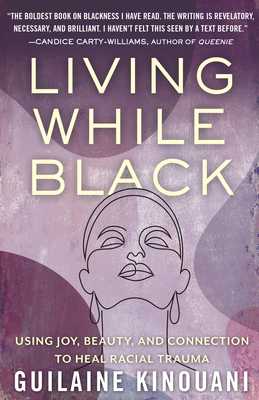 Living While Black: Using Joy, Beauty, and Connection to Heal Racial Trauma
Living While Black: Using Joy, Beauty, and Connection to Heal Racial Trauma
by Guilaine KinouaniBeacon Press (Jan 25, 2022)
Read Detailed Book Description
A Guardian “Best Book of 2021” Selection
A powerful look at the impacts of anti-Black racism and a practical guide for overcoming racial trauma through radical self-care as a form of resistance
Over the past 15 years, radical psychologist Guilaine Kinouani has focused her research, writing, and workshops on how racism affects both physical and mental health. Living While Black gives voice to the diverse, global experiences of Black people, using personal stories, powerful case studies, and eye-opening research to offer expert guidance on how to set boundaries and process micro-aggressions; protect children from racism; handle difficult race-based conversations; navigate the complexities of Black love; and identify and celebrate the wins.
Based on her findings, Kinouani has devised tried-and-tested strategies to help protect Black people from the harmful effects of verbal, physical, and structural racism. She empowers Black readers to adopt self-care mechanisms to improve their day-to-day wellness to help them thrive, not just survive, and to find hope and beauty—or even joy—in the face of racial adversity. She also provides a vital resource for allies seeking to better understand the impacts of racism and how they can help.
With the rise of far-right ideologies and the increase of racist hate crimes, Living While Black is both timely and instrumental in moving conversations from defining racism for non-Black majorities to focusing on healing and nurturing the mental health of those facing prejudice, discrimination, and the lasting effects of the violence of white supremacy.
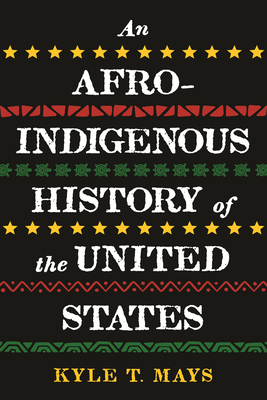 An Afro-Indigenous History of the United States
An Afro-Indigenous History of the United States
by Kyle T. MaysBeacon Press (Nov 16, 2021)
Read Detailed Book Description
The first intersectional history of the Black and Native American struggle for freedom in our country that also reframes our understanding of who was Indigenous in early America
Beginning with pre-Revolutionary America and moving into the movement for Black lives and contemporary Indigenous activism, Afro-Indigenous historian, Kyle T. Mays argues that the foundations of the US are rooted in antiblackness and settler colonialism, and that these parallel oppressions continue into the present. He explores how Black and Indigenous peoples have always resisted and struggled for freedom, sometimes together, and sometimes apart. Whether to end African enslavement and Indigenous removal or eradicate capitalism and colonialism, Mays show how the fervor of Black and Indigenous peoples calls for justice have consistently sought to uproot white supremacy.
Mays uses a wide-array of historical activists and pop culture icons, “sacred” texts, and foundational texts like the Declaration of Independence and Democracy in America. He covers the civil rights movement and freedom struggles of the 1960s and 1970s, and explores current debates around the use of Native American imagery and the cultural appropriation of Black culture. Mays compels us to rethink both our history as well as contemporary debates and to imagine the powerful possibilities of Afro-Indigenous solidarity.
“While we know that slavery and settler colonialism are intricately linked, Kyle Mays uniquely demonstrates that the afterlives of these two institutions are also linked. They provide the land, bodies, and capital for ‘newer’ systems of bondage to flourish, such as mass incarceration. You will never think of the peoples’ history the same way after reading An Afro-Indigenous History of the United States.”
—Robin D. G. Kelley, author of Freedom Dreams: The Black Radical Imagination
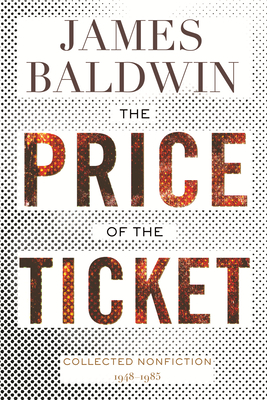 The Price of the Ticket: Collected Nonfiction: 1948-1985
The Price of the Ticket: Collected Nonfiction: 1948-1985
by James BaldwinBeacon Press (Sep 21, 2021)
Read Detailed Book Description
An essential compendium of James Baldwin’s most powerful nonfiction work, calling on us “to end the racial nightmare, and achieve our country.”
Personal and prophetic, these essays uncover what it means to live in a racist American society with insights that feel as fresh today as they did over the 4 decades in which he composed them. Longtime Baldwin fans and especially those just discovering his genius will appreciate this essential collection of his great nonfiction writing, available for the first time in affordable paperback. Along with 46 additional pieces, it includes the full text of dozens of famous essays from such books as:
- Notes of a Native Son
- Nobody Knows My Name
- The Fire Next Time
- No Name in the Street
- The Devil Finds Work
This collection provides the perfect entre into Baldwin’s prescient commentary on race, sexuality, and identity in an unjust American society.
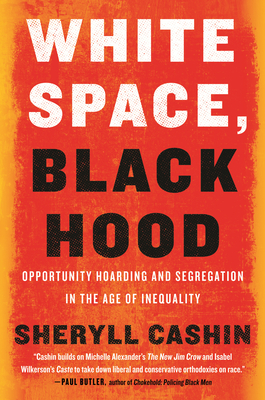 White Space, Black Hood: Opportunity Hoarding and Segregation in the Age of Inequality
White Space, Black Hood: Opportunity Hoarding and Segregation in the Age of Inequality
by Sheryll CashinBeacon Press (Sep 14, 2021)
Read Detailed Book Description
Shows how government created “ghettos” and affluent white space and entrenched a system of American residential caste that is the linchpin of US inequality—and issues a call for abolition.
The iconic Black hood, like slavery and Jim Crow, is a peculiar American institution animated by the ideology of white supremacy. Politicians and people of all colors propagated “ghetto” myths to justify racist policies that concentrated poverty in the hood and created high-opportunity white spaces. In White Space, Black Hood, Sheryll Cashin traces the history of anti-Black residential caste—boundary maintenance, opportunity hoarding, and stereotype-driven surveillance—and unpacks its current legacy so we can begin the work to dismantle the structures and policies that undermine Black lives.
Drawing on nearly 2 decades of research in cities including Baltimore, St. Louis, Chicago, New York, and Cleveland, Cashin traces the processes of residential caste as it relates to housing, policing, schools, and transportation. She contends that geography is now central to American caste. Poverty-free havens and poverty-dense hoods would not exist if the state had not designed, constructed, and maintained this physical racial order.
Cashin calls for abolition of these state-sanctioned processes. The ultimate goal is to change the lens through which society sees residents of poor Black neighborhoods from presumed thug to presumed citizen, and to transform the relationship of the state with these neighborhoods from punitive to caring. She calls for investment in a new infrastructure of opportunity in poor Black neighborhoods, including richly resourced schools and neighborhood centers, public transit, Peacemaker Fellowships, universal basic incomes, housing choice vouchers for residents, and mandatory inclusive housing elsewhere.
Deeply researched and sharply written, White Space, Black Hood is a call to action for repairing what white supremacy still breaks.
Includes historical photos, maps, and charts that illuminate the history of residential segregation as an institution and a tactic of racial oppression.
“In this brilliant and nuanced new volume, Sheryll Cashin exposes the ways in which American policy decisions, from the early twentieth century to the present, have constructed a ‘residential caste system’ resulting in the entrapment of Black people in high-poverty neighborhoods while ‘overinvesting in affluent white space.’ Riveting and beautifully written, White Space, Black Hood convinces the reader of the centrality of geography in economic and social inequality.”
—Henry Louis Gates, Jr.
“We need Sheryll Cashin’s scholarship to make sense of the racial inequalities that mar every urban community, and we need her vision to guide us to a more equal society. Illuminating, compassionate, and engrossing … an instant classic.”
—Heather McGhee, author of The Sum of Us: What Racism Costs Everyone and How We Can Prosper Together
“Sheryll Cashin is one of the most important civil rights scholars of our time, and White Space, Black Hood is her magnum opus, the searing culmination of decades of research about the devastating consequences of segregation. Cashin builds on Michelle Alexander’s The New Jim Crow and Isabel Wilkerson’s Caste to take down liberal and conservative orthodoxies on race. (White) America is not ready for this book.”
—Paul Butler, author of Chokehold: Policing Black Men
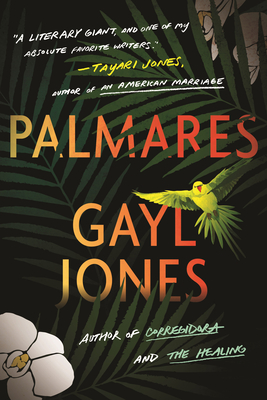 Palmares
Palmares
by Gayl JonesBeacon Press (Sep 14, 2021)
Read Detailed Book Description
The epic rendering of a Black woman’s journey through slavery and liberation, set in 17th-century colonial Brazil; the return of a major voice in American literature.
First discovered and edited by Toni Morrison, Gayl Jones has been described as one of the great literary writers of the 20th century. Now, for the first time in over 20 years, Jones is ready to publish again. Palmares is the first of five new works by Gayl Jones to be published in the next two years, rewarding longtime fans and bringing her talent to a new generation of readers.
Intricate and compelling, Palmares recounts the journey of Almeyda, a Black slave girl who comes of age on Portuguese plantations and escapes to a fugitive slave settlement called Palmares. Following its destruction, Almeyda embarks on a journey across colonial Brazil to find her husband, lost in battle.
Her story brings to life a world impacted by greed, conquest, and colonial desire. She encounters a mad lexicographer, desperate to avoid military service; a village that praises a god living in a nearby cave; and a medicine woman who offers great magic, at a greater price.
Combining the author’s mastery of language and voice with her unique brand of mythology and magical realism, Jones reimagines the historical novel. The result is a sweeping saga spanning a quarter century, with vibrant settings and unforgettable characters, steeped in the rich oral tradition of its world. Of Gayl Jones, the New Yorker noted, “[Her] great achievement is to reckon with both history and interiority, and to collapse the boundary between them.” Like nothing else before it, Palmares embodies this gift.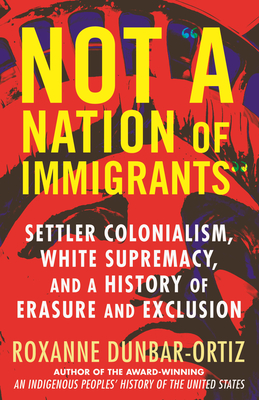 Not a Nation of Immigrants: Settler Colonialism, White Supremacy, and a History of Erasure and Exclusion
Not a Nation of Immigrants: Settler Colonialism, White Supremacy, and a History of Erasure and Exclusion
by Roxanne Dunbar-OrtizBeacon Press (Aug 24, 2021)
Read Detailed Book Description
Debunks the pervasive and self-congratulatory myth that our country is proudly founded by and for immigrants, and urges readers to embrace a more complex and honest history of the United States
Whether in political debates or discussions about immigration around the kitchen table, many Americans, regardless of party affiliation, will say proudly that we are a nation of immigrants. In this bold new book, historian Roxanne Dunbar-Ortiz asserts this ideology is harmful and dishonest because it serves to mask and diminish the US’s history of settler colonialism, genocide, white supremacy, slavery, and structural inequality, all of which we still grapple with today.
She explains that the idea that we are living in a land of opportunity—founded and built by immigrants—was a convenient response by the ruling class and its brain trust to the 1960s demands for decolonization, justice, reparations, and social equality. Moreover, Dunbar-Ortiz charges that this feel good—but inaccurate—story promotes a benign narrative of progress, obscuring that the country was founded in violence as a settler state, and imperialist since its inception.
While some of us are immigrants or descendants of immigrants, others are descendants of white settlers who arrived as colonizers to displace those who were here since time immemorial, and still others are descendants of those who were kidnapped and forced here against their will. This paradigm-shifting new book from the highly acclaimed author of An Indigenous Peoples’ History of the United States charges that we need to stop believing and perpetuating this simplistic and a historical idea and embrace the real (and often horrific) history of the United States.
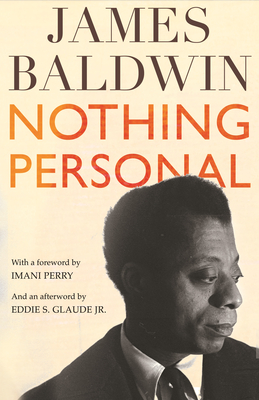 Nothing Personal
Nothing Personal
by James BaldwinBeacon Press (May 04, 2021)
Read Detailed Book Description
James Baldwin’s critique of American society at the height of the civil rights movement brings his prescient thoughts on social isolation, race, and police brutality to a new generation of readers.
Available for the first time in a stand-alone edition, Nothing Personal is Baldwin’s deep probe into the American condition. Considering the Black Lives Matter protests in the summer of 2020—which were met with tear gas and rubber bullets the same year white supremacists entered the US Capitol with little resistance, openly toting flags of the Confederacy—Baldwin’s documentation of his own troubled times cuts to the core of where we find ourselves today.
Baldwin’s thoughts move through an interconnected range of questions, from America’s fixation on eternal youth, to its refusal to recognize the past, its addiction to consumerism, and the lovelessness that fuels it in its cities and popular culture. He recounts his own encounter with police in a scene disturbingly similar to those we see today documented with ever increasing immediacy. This edition also includes a new foreword from interdisciplinary scholar Imani Perry and an afterword from noted Baldwin scholar Eddie S. Glaude Jr. Both explore and situate the essay within the broader context of Baldwin’s work, the Movement for Black Lives, the COVID-19 pandemic, and the presidency of Donald Trump.
Nothing Personal is both a eulogy and a declaration of will. In bringing this work into the twenty-first century, readers new and old will take away fundamental and recurring truths about life in the US. It is both a call to action, and an appeal to love and to life.
 Sonia Sanchez Collected Poems
Sonia Sanchez Collected Poems
by Sonia SanchezBeacon Press (Apr 13, 2021)
Read Detailed Book Description
Winner Gish Prize for Lifetime Achievement
A representative collection of the life work of the much-honored poet and a founder of the Black Arts movement, spanning the 4 decades of her literary career.
Gathering highlights from all of Sonia Sanchez’s poetry, this compilation is sure to inspire love and community engagement among her legions of fans. Beginning with her earliest work, including poems from her first volume, Homecoming (1969), through to 2019, the poet has collected her favorite work in all forms of verse, from Haiku to excerpts from book-length narratives. Her lifelong dedication to the causes of Black liberation, social equality, and women’s rights is evident throughout, as is her special attention to youth in poems addressed to children and young adults.
As Maya Angelou so aptly put it: “Sonia Sanchez is a lion in literature’s forest. When she writes she roars, and when she sleeps other creatures walk gingerly.”
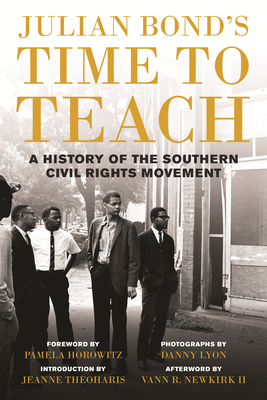 Julian Bondís Time to Teach: A History of the Southern Civil Rights Movement
Julian Bondís Time to Teach: A History of the Southern Civil Rights Movement
by Julian BondBeacon Press (Jan 12, 2021)
Read Detailed Book Description
A masterclass in the civil rights movement from one of the legendary activists who led it.
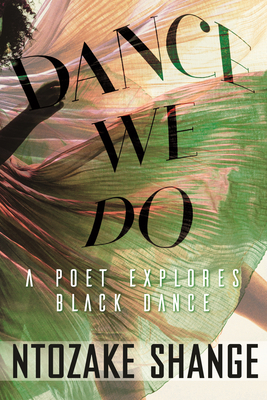 Dance We Do: A Poet Explores Black Dance
Dance We Do: A Poet Explores Black Dance
by Ntozake ShangeBeacon Press (Oct 13, 2020)
Read Detailed Book Description
In her first posthumous work, the revered poet crafts a personal history of Black dance and captures the careers of legendary dancers along with her own rhythmic beginnings.
Many learned of Ntozake Shange’s ability to blend movement with words when her acclaimed choreopoem for colored girls who have considered suicide/when the rainbow is enuf made its way to Broadway in 1976, eventually winning an Obie Award the following year. But before she found fame as a writer, poet, performer, dancer, and storyteller, she was an untrained student who found her footing in others’ classrooms. Dance We Do is a tribute to those who taught her and her passion for rhythm, movement, and dance.
After 20 years of research, writing, and devotion, Ntozake Shange tells her history of Black dance through a series of portraits of the dancers who trained her, moved with her, and inspired her to share the power of the Black body with her audience. Shange celebrates and honors the contributions of the often unrecognized pioneers who continued the path Katherine Dunham paved through the twentieth century. Dance We Do features a stunning photo insert along with personal interviews with Mickey Davidson, Halifu Osumare, Camille Brown, and Dianne McIntyre. In what is now one of her final works, Ntozake Shange welcomes the reader into the world she loved best.
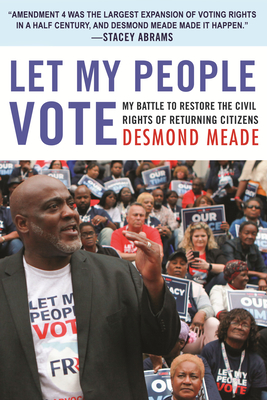 Let My People Vote: My Battle to Restore the Civil Rights of Returning Citizens
Let My People Vote: My Battle to Restore the Civil Rights of Returning Citizens
by Desmond MeadeBeacon Press (Oct 06, 2020)
Read Detailed Book Description
The inspiring and eye-opening true story of one man’s undying belief in the power of a fully enfranchised nation.
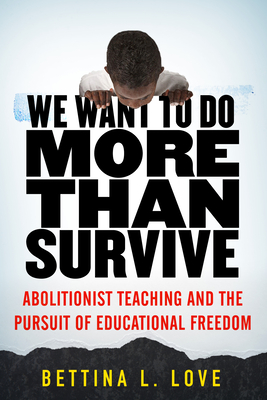 We Want to Do More Than Survive: Abolitionist Teaching and the Pursuit of Educational Freedom
We Want to Do More Than Survive: Abolitionist Teaching and the Pursuit of Educational Freedom
by Bettina L. LoveBeacon Press (Feb 04, 2020)
Read Detailed Book Description
Drawing on personal stories, research, and historical events, an esteemed educator offers a vision of educational justice inspired by the rebellious spirit and methods of abolitionists.
Drawing on her life’s work of teaching and researching in urban schools, Bettina Love persuasively argues that educators must teach students about racial violence, oppression, and how to make sustainable change in their communities through radical civic initiatives and movements. She argues that the US educational system is maintained by and profits from the suffering of children of color. Instead of trying to repair a flawed system, educational reformers offer survival tactics in the forms of test-taking skills, acronyms, grit labs, and character education, which Love calls the educational survival complex.
To dismantle the educational survival complex and to achieve educational freedom—not merely reform—teachers, parents, and community leaders must approach education with the imagination, determination, boldness, and urgency of an abolitionist. Following in the tradition of activists like Ella Baker, Bayard Rustin, and Fannie Lou Hamer, We Want to Do More Than Survive introduces an alternative to traditional modes of educational reform and expands our ideas of civic engagement and intersectional justice.
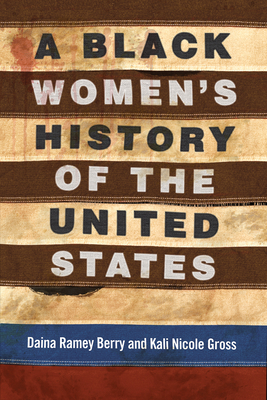 A Black Womenís History of the United States
A Black Womenís History of the United States
by Daina Ramey Berry and Kali Nicole GrossBeacon Press (Feb 04, 2020)
Read Detailed Book Description
Daina Ramey Berry is the Oliver H. Radkey Regents Professor of History and associate dean of the Graduate School at the University of Texas at Austin. She is the author or co-editor of several previous books, including The Price for Their Pound of Flesh: The Value of the Enslaved, from Womb to Grave, in the Building of a Nation, winner of the 2017 SHEAR Book Award for Early American History. Connect with her at drdainarameyberry.com or @DainaRameyBerry on Twitter.
Kali Nicole Gross is the Martin Luther King Jr. Professor of History at Rutgers University, New Brunswick. Her previous books include Hannah Mary Tabbs and the Disembodied Torso: A Tale of Race, Sex, and Violence in America, winner of the 2017 Hurston/Wright Legacy Award in nonfiction. Learn more at kalinicolegross.com or connect with her on Twitter @KaliGrossPhD.
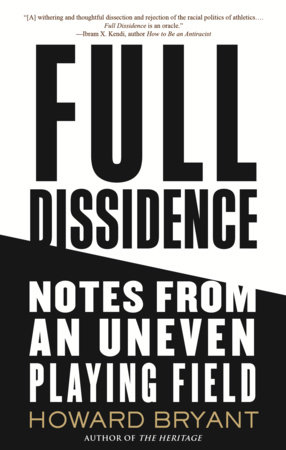 Full Dissidence: Notes from an Uneven Playing Field
Full Dissidence: Notes from an Uneven Playing Field
by Howard BryantBeacon Press (Jan 21, 2020)
Read Detailed Book Description
A bold and impassioned meditation on injustice in our country that punctures the illusion of a postracial America and reveals it as a place where authoritarianism looms large.
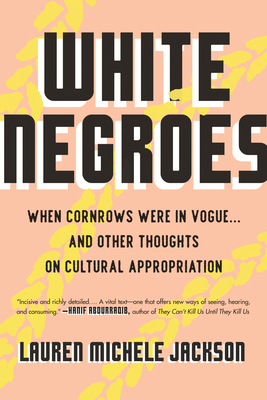 White Negroes: When Cornrows Were in Vogue … and Other Thoughts on Cultural Appropriation
White Negroes: When Cornrows Were in Vogue … and Other Thoughts on Cultural Appropriation
by Lauren Michele JacksonBeacon Press (Nov 12, 2019)
Read Detailed Book Description
Exposes the new generation of whiteness thriving at the expense and borrowed ingenuity of black people—and explores how this intensifies racial inequality.
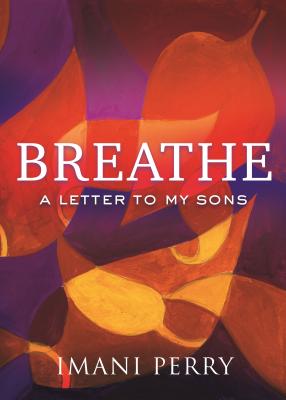 Breathe: A Letter to My Sons
Breathe: A Letter to My Sons
by Imani PerryBeacon Press (Sep 17, 2019)
Read Detailed Book Description
Imani Perry is the Hughes-Rogers Professor of African American Studies at Princeton University, where she also teaches in the Programs in Law and Public Affairs, and in Gender and Sexuality Studies. She is a native of Birmingham, Alabama, and spent much of her youth in Cambridge, Massachusetts, and Chicago. She is the author of several books, including Looking for Lorraine: The Radiant and Radical Life of Lorraine Hansberry. She lives outside Philadelphia with her two sons, Freeman Diallo Perry Rabb and Issa Garner Rabb. Connect with her on Twitter (@imaniperry).
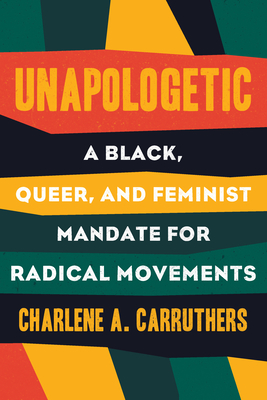 Unapologetic: A Black, Queer, and Feminist Mandate for Radical Movements
Unapologetic: A Black, Queer, and Feminist Mandate for Radical Movements
by Charlene A. CarruthersBeacon Press (Aug 27, 2019)
Read Detailed Book Description
A manifesto from one of America’s most influential activists which disrupts political, economic, and social norms by reimagining the Black Radical Tradition.
Drawing on Black intellectual and grassroots organizing traditions, including the Haitian Revolution, the US civil rights movement, and LGBTQ rights and feminist movements, Unapologetic challenges all of us engaged in the social justice struggle to make the movement for Black liberation more radical, more queer, and more feminist. This book provides a vision for how social justice movements can become sharper and more effective through principled struggle, healing justice, and leadership development. It also offers a flexible model of what deeply effective organizing can be, anchored in the Chicago model of activism, which features long-term commitment, cultural sensitivity, creative strategizing, and multiple cross-group alliances. And Unapologetic provides a clear framework for activists committed to building transformative power, encouraging young people to see themselves as visionaries and leaders.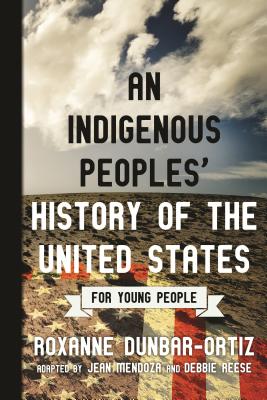 An Indigenous Peoplesí History of the United States for Young People
An Indigenous Peoplesí History of the United States for Young People
by Roxanne Dunbar-OrtizBeacon Press (Jul 23, 2019)
Read Detailed Book Description
2020 American Indian Youth Literature Young Adult Honor Book
2020 Notable Social Studies Trade Books for Young People,selected by National Council for the Social Studies (NCSS) and the Children’s Book Council
2019 Best-Of Lists: Best YA Nonfiction of 2019 (Kirkus Reviews) ∑ Best Nonfiction of 2019 (School Library Journal) ∑ Best Books for Teens (New York Public Library) ∑ Best Informational Books for Older Readers (Chicago Public Library)
Spanning more than 400 years, this classic bottom-up history examines the legacy of Indigenous peoples’ resistance, resilience, and steadfast fight against imperialism.
Going beyond the story of America as a country “discovered” by a few brave men in the “New World,” Indigenous human rights advocate Roxanne Dunbar-Ortiz reveals the roles that settler colonialism and policies of American Indian genocide played in forming our national identity.
The original academic text is fully adapted by renowned curriculum experts Debbie Reese and Jean Mendoza, for middle-grade and young adult readers to include discussion topics, archival images, original maps, recommendations for further reading, and other materials to encourage students, teachers, and general readers to think critically about their own place in history.
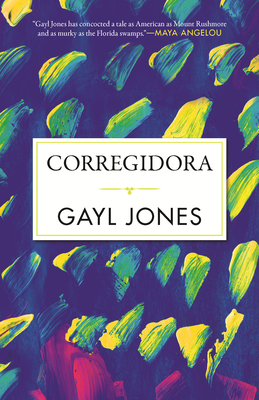 Corregidora
Corregidora
by Gayl JonesBeacon Press (Jan 29, 2019)
Read Detailed Book Description
Here is Gayl Jones’s classic novel, the tale of blues singer Ursa, consumed by her hatred of the nineteenth-century slave master who fathered both her grandmother and mother.
 A Treasury of African American Christmas Stories
A Treasury of African American Christmas Stories
by Bettye Collier-ThomasBeacon Press (Oct 09, 2018)
Read Detailed Book Description
An Esquire “Best Christmas Book to Read During the Holidays”
A Festive Celebration of Black Storytelling: Discover 22 Christmas stories by African American writers from the late 19th century to the civil rights movement!
Back in print for the first time in over a decade, this landmark collection features writings from well-known Black writers, activists, and visionaries such as Pauline Hopkins, Langston Hughes, and John Henrik Clarke, along with literary gems from rediscovered writers. Originally published in African American newspapers, periodicals, and journals between 1880 and 1953, these enchanting Christmas tales are part of the Black literary tradition that flourished after the Civil War.
Edited and assembled by esteemed historian Dr. Bettye Collier-Thomas, the short stories and poems in this collection reflect the Christmas experiences of everyday African Americans and explore familial and romantic love, faith, and more serious topics such as racism, violence, poverty, and racial identity. Featuring the best stories and poems from previous editions along with new material including The Sermon in the Cradle by W. E. B. Du Bois, A Treasury of African American Christmas Stories celebrates a rich storytelling tradition and will be cherished by readers for years to come.
“I’ve enjoyed these stories immensely. Ms. Collier-Thomas has unearthed historical gems … ” —Gloria Naylor, author of The Women of Brewster Place
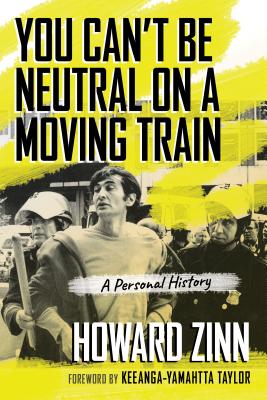 You Canít Be Neutral on a Moving Train: A Personal History
You Canít Be Neutral on a Moving Train: A Personal History
by Howard ZinnBeacon Press (Sep 18, 2018)
Read Detailed Book Description
If you’re both overcome and angered by the atrocities of our time, this will inspire a “new generation of activists and ordinary people who search for hope in the darkness” (Keeanga-Yamahtta Taylor).
Is change possible? Where will it come from? Can we actually make a difference? How do we remain hopeful?
Howard Zinn—activist, historian, and author of A People’s History of the United States—was a participant in and chronicler of some of the landmark struggles for racial and economic justice in US history. In his memoir, You Can’t Be Neutral on a Moving Train, Zinn reflects on more than thirty years of fighting for social change, from his teenage years as a laborer in Brooklyn to teaching at Spelman College, where he emerged in the civil rights movement as a powerful voice for justice. A former bombardier in World War II, he later became an outspoken antiwar activist, spirited protestor, and champion of civil disobedience. Throughout his life, Zinn was unwavering in his belief that “small acts, when multiplied by millions of people, can transform the world.” With a foreword from activist and scholar Keeanga-Yamahtta Taylor, this revised edition will inspire a new generation of readers to believe that change is possible.
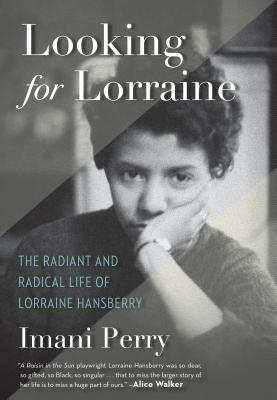 Looking for Lorraine: The Radiant and Radical Life of Lorraine Hansberry
Looking for Lorraine: The Radiant and Radical Life of Lorraine Hansberry
by Imani PerryBeacon Press (Sep 18, 2018)
Read Detailed Book Description
A revealing portrait of one of the most gifted and charismatic, yet least understood, Black artists and intellectuals of the twentieth century.
Lorraine Hansberry, who died at thirty-four, was by all accounts a force of nature. Although best-known for her work A Raisin in the Sun, her short life was full of extraordinary experiences and achievements, and she had an unflinching commitment to social justice, which brought her under FBI surveillance when she was barely in her twenties. While her close friends and contemporaries, like James Baldwin and Nina Simone, have been rightly celebrated, her story has been diminished and relegated to one work—until now. In 2018, Hansberry will get the recognition she deserves with the PBS American Masters documentary “Lorraine Hansberry: Sighted Eyes/Feeling Heart” and Imani Perry’s multi-dimensional, illuminating biography, Looking for Lorraine.
After the success of A Raisin in the Sun, Hansberry used her prominence in myriad ways: challenging President Kennedy and his brother to take bolder stances on Civil Rights, supporting African anti-colonial leaders, and confronting the romantic racism of the Beat poets and Village hipsters. Though she married a man, she identified as lesbian and, risking censure and the prospect of being outed, joined one of the nation’s first lesbian organizations. Hansberry associated with many activists, writers, and musicians, including Malcolm X, Langston Hughes, Duke Ellington, Paul Robeson, W.E.B. Du Bois, among others. Looking for Lorraine is a powerful insight into Hansberry’s extraordinary life—a life that was tragically cut far too short.
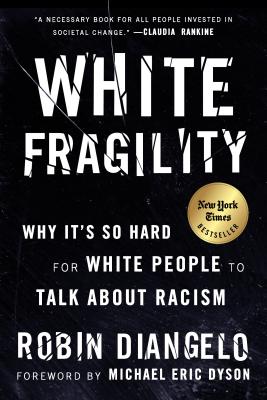 White Fragility: Why Itís So Hard for White People to Talk about Racism
White Fragility: Why Itís So Hard for White People to Talk about Racism
by Robin DiAngeloBeacon Press (Jun 26, 2018)
Read Detailed Book Description
The New York Times best-selling book exploring the counterproductive reactions white people have when their assumptions about race are challenged, and how these reactions maintain racial inequality.
In this "vital, necessary, and beautiful book" (Michael Eric Dyson), antiracist educator Robin DiAngelo deftly illuminates the phenomenon of white fragility and "allows us to understand racism as a practice not restricted to ’bad people’ (Claudia Rankine). Referring to the defensive moves that white people make when challenged racially, white fragility is characterized by emotions such as anger, fear, and guilt, and by behaviors including argumentation and silence. These behaviors, in turn, function to reinstate white racial equilibrium and prevent any meaningful cross-racial dialogue. In this in-depth exploration, DiAngelo examines how white fragility develops, how it protects racial inequality, and what we can do to engage more constructively.
Download readers guides at www.beacon.org/whitefragility.
Table of Contents:
Foreword by Michael Eric Dyson
Author’s Note
Introduction: We Can’t Get There from Here
1. The Challenges of Talking to White People About Racism
2. Racism and White Supremacy
3. Racism After the Civil Rights Movement
4. How Does Race Shape the Lives of White People?
5. The Good/Bad Binary
6. Anti-Blackness
7. Racial Triggers for White People
8. The Result: White Fragility
9. White Fragility in Action
10. White Fragility and the Rules of Engagement
11. White Women’s Tears
12. Where Do We Go from Here?
Resources for Continuing Education
Acknowledgments
Notes
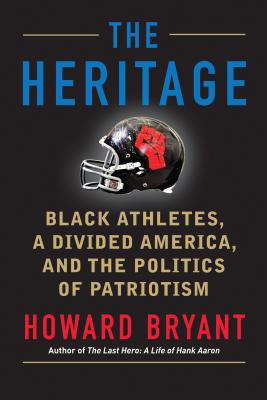 The Heritage: Black Athletes, a Divided America, and the Politics of Patriotism
The Heritage: Black Athletes, a Divided America, and the Politics of Patriotism
by Howard BryantBeacon Press (May 08, 2018)
Read Detailed Book Description
Following in the footsteps of Robeson, Ali, Robinson and others, today’s Black athletes re-engage with social issues and the meaning of American patriotism
For most of the twentieth century, "No News on the Sports Page" governed how sports were played and perceived in America. The ballfield was a sanctuary from real-world problems. Today, that is a naive notion.
The reasons are complex. But among them, post 9/11, sports arenas transformed into staging grounds for American patriotism and pride. As America dealt with terrorism at home, hero-worship of law enforcement took center stage. Police officers threw out first pitches; soldiers’ surprise homecomings became a staple at half time; and teams wore camouflage jerseys to honor those who served. Any critique of police or military authority looked unpatriotic, even when the authority deserved criticism.
This paradigm shift activated a long-dormant force not seen in several decades: the black athlete as a figure of resistance. In The Heritage, sports journalist Howard Bryant observes how the tradition of neutrality on the pitch has given way to a new generation of activist-athletes. It is the story of the rise, fall, and return of "athlevists" who refuse to "shut up and play." It is a heritage built by the superstardom and radical politics of Jackie Robinson, Muhammad Ali, Tommie Smith, and John Carlos in the 1960s; undermined by apolitical, corporation-friendly "transcenders of race" O.J. Simpson, Michael Jordan, and Tiger Woods, in the following decades; and reclaimed today by the likes of LeBron James, Colin Kaepernick, and Carmelo Anthony in the wake of Ferguson and Freddie Gray. Revealing and incisive, Bryant deftly shows how sports is colliding with political culture, and how athletes, teams and leagues are melding the two.
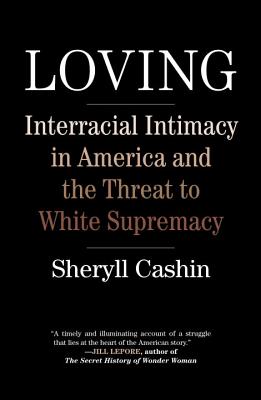 Loving: Interracial Intimacy in America and the Threat to White Supremacy
Loving: Interracial Intimacy in America and the Threat to White Supremacy
by Sheryll CashinBeacon Press (Feb 13, 2018)
Read Detailed Book Description
The landmark story of how interracial love and marriage changed American history—and continues to alter the landscape of American politics When Mildred and Richard Loving wed in 1958, they were ripped from their shared bed and taken to court. Their crime: miscegenation, punished by exile from their home state of Virginia. The resulting landmark decision of Loving v. Virginia ended bans on interracial marriage and remains a signature case—the first to use the words “white supremacy” to describe such racism. Drawing from the earliest chapters in US history, legal scholar Sheryll Cashin reveals the enduring legacy of America’s original sin, tracing how we transformed from a country without an entrenched construction of race to a nation where one drop of nonwhite blood merited exclusion from full citizenship. In vivid detail, she illustrates how the idea of whiteness was created by the planter class of yesterday and is reinforced by today’s power-hungry dog-whistlers to divide struggling whites and people of color, ensuring plutocracy and undermining the common good. Not just a hopeful treatise on the future of race relations in America, Loving challenges the notion that trickle-down progressive politics is our only hope for a more inclusive society. Accessible and sharp, Cashin reanimates the possibility of a future where interracial understanding serves as a catalyst of a social revolution ending not in artificial color blindness but in a culture where acceptance and difference are celebrated. “White supremacy has long foiled love, and love has long foiled white supremacy. Sheryll Cashin offers us this essential historical revelation in Loving. This fascinating and accessible story puts the fifty-year-old Loving v. Virginia decision in much-needed historical perspective and shares its unknown post-history. In the end, Loving offers an optimistic showpiece of the possibilities of an antiracist America divorced from white supremacy where ‘dexterous’ acceptors of difference can marry, can befriend, can love the identical hearts under our different-looking skins. Loving gives us the historical tools and urges us to renew our old fight for the human right to love.” —Ibram X. Kendi, author of Stamped from the Beginning: The Definitive History of Racist Ideas in America “Cashin makes a compelling argument that interracial intimacy, though in and of itself inadequate for eradicating white supremacy, contributes to a racial dexterity the likes of which will be crucial to that task in years to come. With rich historicity and sharp analysis, she explores the ways in which interracial romance has long served as a bogeyman for racists but is now helping to create a critical mass of whites who may, finally, see fit to join with their black and brown partners, lovers, friends, and colleagues to forge a new and better nation.” —Tim Wise, author of White Like Me: Reflections on Race from a Privileged Son and Dear White America: Letter to a New Minority
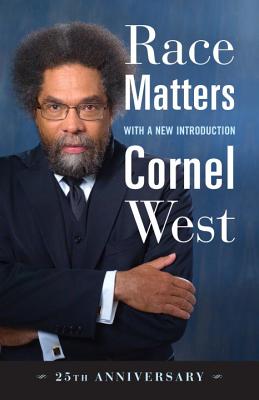 Race Matters (hardcover)
Race Matters (hardcover)
by Cornel WestBeacon Press (Dec 05, 2017)
Read Detailed Book Description
The twenty-fifth-anniversary edition of the groundbreaking classic, with a new introduction
First published in 1993, on the one-year anniversary of the Los Angeles riots, Race Matters became a national best seller that has gone on to sell more than half a million copies. This classic treatise on race contains Dr. West’s most incisive essays on the issues relevant to black Americans, including the crisis in leadership in the Black community, Black conservatism, Black-Jewish relations, myths about Black sexuality, and the legacy of Malcolm X. The insights Dr. West brings to these complex problems remain relevant, provocative, creative, and compassionate.
In a new introduction for the twenty-fifth-anniversary edition, Dr. West argues that we are in the midst of a spiritual blackout characterized by imperial decline, racial animosity, and unchecked brutality and terror as seen in Baltimore, Ferguson, and Charlottesville. Calling for a moral and spiritual awakening, Dr. West finds hope in the collective and visionary resistance exemplified by the Movement for Black Lives, Standing Rock, and the Black freedom tradition.
Now more than ever, Race Matters is an essential book for all Americans, helping us to build a genuine multiracial democracy in the new millennium.
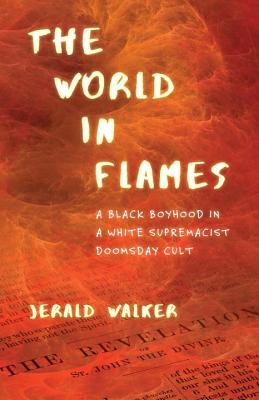 The World in Flames: A Black Boyhood in a White Supremacist Doomsday Cult
The World in Flames: A Black Boyhood in a White Supremacist Doomsday Cult
by Jerald WalkerBeacon Press (Sep 12, 2017)
Read Detailed Book Description
A memoir of growing up with blind, African-American parents in a segregated cult preaching the imminent end of the world
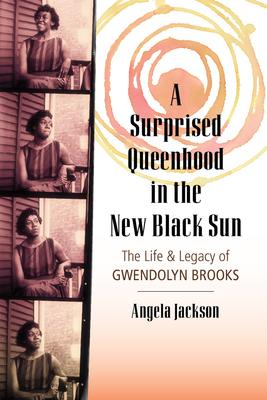 Surprised Queenhood in the New Black Sun: The Life & Legacy of Gwendolyn Brooks
Surprised Queenhood in the New Black Sun: The Life & Legacy of Gwendolyn Brooks
by Angela JacksonBeacon Press (May 30, 2017)
Read Detailed Book Description
Pulitzer-Prize winning poet Gwendolyn Brooks is one of the great American literary icons of the twentieth century, a protege of Langston Hughes and mentor to a generation of poets, including Sonia Sanchez, Nikki Giovanni, and Elizabeth Alexander.
Her poetry took inspiration from the complex portraits of black American life she observed growing up on Chicago’s Southside—a world of kitchenette apartments and vibrant streets. From the desk in her bedroom, as a child she filled countless notebooks with poetry, encouraged by the likes of Hughes and affirmed by Richard Wright, who called her work "raw and real."
Over the next sixty years, Brooks’s poetry served as a witness to the stark realities of urban life: the evils of lynching, the murders of Emmett Till and Malcolm X, the revolutionary effects of the civil rights movement, and the burgeoning power of the Black Arts Movement. Critical acclaim and the distinction in 1950 as the first black person ever awarded a Pulitzer Prize helped solidify Brooks as a unique and powerful voice.
Now, in A Surprised Queenhood in the New Black Sun, fellow Chicagoan and award-winning writer Angela Jackson delves deep into the rich fabric of Brooks’s work and world. Granted unprecedented access to Brooks’s family, personal papers, and writing community, Jackson traces the literary arc of this artist’s long career and gives context for the world in which Brooks wrote and published her work. It is a powerfully intimate look at a once-in-a-lifetime talent up close, using forty-three of Brooks’s most soul-stirring poems as a guide.
From trying to fit in at school ("Forgive and Forget"), to loving her physical self ("To Those of My Sisters Who Kept Their Naturals"), to marriage and motherhood ("Maud Martha"), to young men on her block (""We Real Cool""), to breaking history ("Medgar Evers"), to newfound acceptance from her community and her elevation to a "surprising queenhood" ("The Wall"), Brooks lived life through her work.
Jackson deftly unpacks it all for both longtime admirers of Brooks and newcomers curious about her interior life. A Surprised Queenhood in the New Black Sun is a commemoration of a writer who negotiated black womanhood and incomparable brilliance with a changing, restless world—an artistic maverick way ahead of her time.
 Spare the Kids: Why Whupping Children Wonít Save Black America
Spare the Kids: Why Whupping Children Wonít Save Black America
by Stacey PattonBeacon Press (Mar 07, 2017)
Read Detailed Book Description
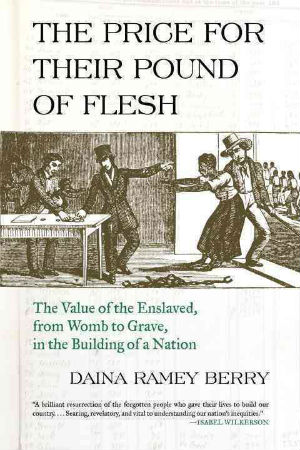 The Price for Their Pound of Flesh: The Value of the Enslaved, from Womb to Grave, in the Building of a Nation
The Price for Their Pound of Flesh: The Value of the Enslaved, from Womb to Grave, in the Building of a Nation
by Daina Ramey BerryBeacon Press (Jan 24, 2017)
Read Detailed Book Description
Groundbreaking look at slaves as commodities through every phase of life, from birth to death and beyond, in early America
In life and in death, slaves were commodities, their monetary value assigned based on their age, gender, health, and the demands of the market. The Price for Their Pound of Flesh is the first book to explore the economic value of enslaved people through every phase of their lives—including preconception, infancy, childhood, adolescence, adulthood, the senior years, and death—in the early American domestic slave trade. Covering the full “life cycle,” historian Daina Ramey Berry shows the lengths to which enslavers would go to maximize profits and protect their investments. Illuminating “ghost values” or the prices placed on dead enslaved people, Berry explores the little-known domestic cadaver trade and traces the illicit sales of dead bodies to medical schools.
This book is the culmination of more than ten years of Berry’s exhaustive research on enslaved values, drawing on data unearthed from sources such as slave-trading records, insurance policies, cemetery records, and life insurance policies. Writing with sensitivity and depth, she resurrects the voices of the enslaved and provides a rare window into enslaved peoples’ experiences and thoughts, revealing how enslaved people recalled and responded to being appraised, bartered, and sold throughout the course of their lives. Reaching out from these pages, they compel the reader to bear witness to their stories, to see them as human beings, not merely commodities.
A profoundly humane look at an inhumane institution, The Price for Their Pound of Flesh will have a major impact how we think about slavery, reparations, capitalism, nineteenth-century medical education, and the value of life and death.
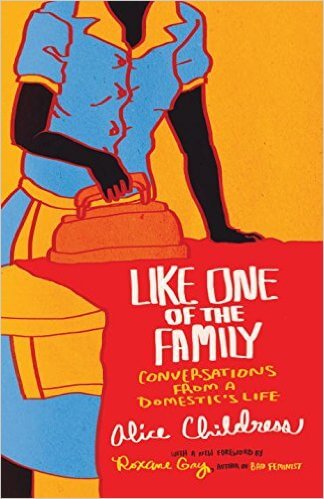 Like One of The Family
Like One of The Family
by Alice ChildressBeacon Press (Jan 24, 2017)
Read Detailed Book Description
A new edition of Alice Childress’s classic novel about African American domestic workers, featuring a foreword by Roxane Gay
First published in Paul Robeson’s newspaper, Freedom, and composed of a series of conversations between Mildred, a black domestic, and her friend Marge, Like One of the Family is a wry, incisive portrait of working women in Harlem in the 1950’s. Rippling with satire and humor, Mildred’s outspoken accounts vividly capture her white employers’ complacency and condescension and their startled reactions to a maid who speaks her mind and refuses to exchange dignity for pay.
Upon publication the book sparked a critique of working conditions, laying the groundwork for the contemporary domestic worker movement. Although she was critically praised, Childress’s uncompromising politics and unflinching depictions of racism, classism, and sexism relegated her to the fringe of American literature. Like One of the Family has been long overlooked, but this new edition, featuring a foreword by best-selling author Roxane Gay, will introduce Childress to a new generation.
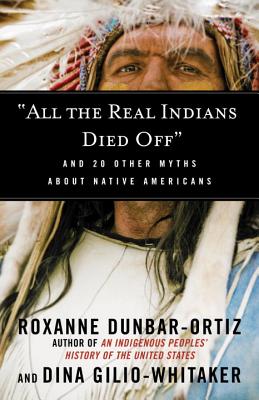 All the Real Indians Died Off: And 20 Other Myths about Native Americans
All the Real Indians Died Off: And 20 Other Myths about Native Americans
by Roxanne Dunbar-OrtizBeacon Press (Oct 04, 2016)
Read Detailed Book Description
Unpacks the twenty-one most common myths and misconceptions about Native Americans
In this enlightening book, scholars and activists Roxanne Dunbar-Ortiz and Dina Gilio-Whitaker tackle a wide range of myths about Native American culture and history that have misinformed generations. Tracing how these ideas evolved, and drawing from history, the authors disrupt long-held and enduring myths such as:
“Columbus Discovered America”
“Thanksgiving Proves the Indians Welcomed Pilgrims”
“Indians Were Savage and Warlike”
“Europeans Brought Civilization to Backward Indians”
“The United States Did Not Have a Policy of Genocide”
“Sports Mascots Honor Native Americans”
“Most Indians Are on Government Welfare”
“Indian Casinos Make Them All Rich”
“Indians Are Naturally Predisposed to Alcohol”
Each chapter deftly shows how these myths are rooted in the fears and prejudice of European settlers and in the larger political agendas of a settler state aimed at acquiring Indigenous land and tied to narratives of erasure and disappearance. Accessibly written and revelatory, “All the Real Indians Died Off” challenges readers to rethink what they have been taught about Native Americans and history.
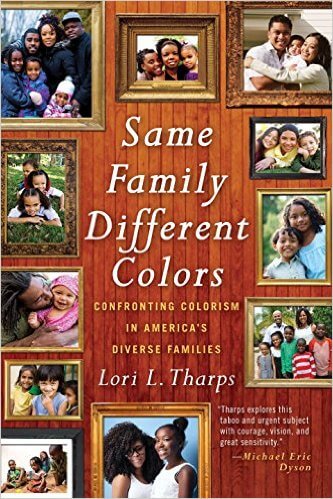 Same Family, Different Colors: Confronting Colorism in Americaís Diverse Families
Same Family, Different Colors: Confronting Colorism in Americaís Diverse Families
by Lori TharpsBeacon Press (Oct 04, 2016)
Read Detailed Book Description
Weaving together personal stories, history, and analysis, Same Family, Different Colors explores the myriad ways skin-color politics affect family dynamics in the United States. Colorism and color bias the preference for or presumed superiority of people based on the lighter color of their skin is a pervasive but rarely openly discussed phenomenon, one that is centuries old and continues today. In Same Family, Different Colors journalist Lori Tharps, the mother of three mixed-race children with three distinct skin colors, uses her own family as a starting point to explore how skin-color difference is dealt with in African American, Latino, Asian American, and mixed-race families and communities. Along with intimate and revealing stories and anecdotes from dozens of diverse people from across the United States, Tharps adds a historical overview and a contemporary cultural critique. Same Family, Different Colors is a solution-seeking journey to the heart of identity politics, so this more subtle cousin to racism, in the author&rsqu;s words, will be acknowledged, understood, and debated.
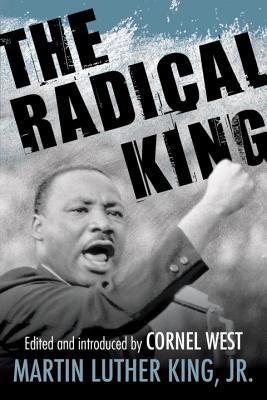 The Radical King (King Legacy)
The Radical King (King Legacy)
by Martin Luther King, Jr.Beacon Press (Jan 12, 2016)
Read Detailed Book Description
A revealing collection that restores Dr. King as being every bit as radical as Malcolm X
“The radical King was a democratic socialist who sided with poor and working people in the class struggle taking place in capitalist societies… . The response of the radical King to our catastrophic moment can be put in one word: revolution—a revolution in our priorities, a reevaluation of our values, a reinvigoration of our public life, and a fundamental transformation of our way of thinking and living that promotes a transfer of power from oligarchs and plutocrats to everyday people and ordinary citizens… . Could it be that we know so little of the radical King because such courage defies our market-driven world?”†—Cornel West, from the Introduction
Every year, Dr. Martin Luther King, Jr., is celebrated as one of the greatest orators in US history, an ambassador for nonviolence who became perhaps the most recognizable leader of the civil rights movement. But after more than forty years, few people appreciate how truly radical he was.
Arranged thematically in four parts, The Radical King includes twenty-three selections, curated and introduced by Dr. Cornel West, that illustrate King’s revolutionary vision, underscoring his identification with the poor, his unapologetic opposition to the Vietnam War, and his crusade against global imperialism. As West writes, “Although much of America did not know the radical King—and too few know today—the FBI and US government did. They called him ‘the most dangerous man in America.’ … This book unearths a radical King that we can no longer sanitize.”
From the Hardcover edition.
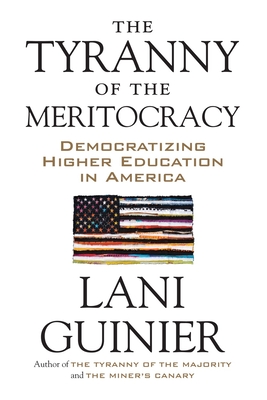 The Tyranny of the Meritocracy: Democratizing Higher Education in America
The Tyranny of the Meritocracy: Democratizing Higher Education in America
by Lani GuinierBeacon Press (Jan 12, 2016)
Read Detailed Book Description
A fresh and bold argument for revamping our standards of "merit" and a clear blueprint for creating collaborative education models that strengthen our democracy rather than privileging individual elites.
Standing on the foundations of America’s promise of equal opportunity, our universities purport to serve as engines of social mobility and practitioners of democracy. But as acclaimed scholar and pioneering civil rights advocate Lani Guinier argues, the merit systems that dictate the admissions practices of these institutions are functioning to select and privilege elite individuals rather than create learning communities geared to advance democratic societies. Having studied and taught at schools such as Harvard University, Yale Law School, and the University of Pennsylvania Law School, Guinier has spent years examining the experiences of ethnic minorities and of women at the nation’s top institutions of higher education, and here she lays bare the practices that impede the stated missions of these schools.
Goaded on by a contemporary culture that establishes value through ranking and sorting, universities assess applicants using the vocabulary of private, highly individualized merit. As a result of private merit standards and ever-increasing tuitions, our colleges and universities increasingly are failing in their mission to provide educational opportunity and to prepare students for productive and engaged citizenship.
To reclaim higher education as a cornerstone of democracy, Guinier argues that institutions of higher learning must focus on admitting and educating a class of students who will be critical thinkers, active citizens, and publicly spirited leaders. Guinier presents a plan for considering "democratic merit," a system that measures the success of higher education not by the personal qualities of the students who enter but by the work and service performed by the graduates who leave.
Guinier goes on to offer vivid examples of communities that have developed effective learning strategies based not on an individual’s "merit" but on the collaborative strength of a group, learning and working together, supporting members, and evolving into powerful collectives. Examples are taken from across the country and include a wide range of approaches, each innovative and effective. Guinier argues for reformation, not only of the very premises of admissions practices but of the shape of higher education itself.
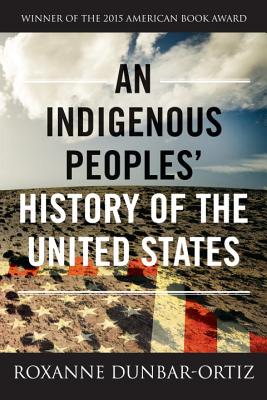 An Indigenous Peoplesí History of the United States
An Indigenous Peoplesí History of the United States
by Roxanne Dunbar-OrtizBeacon Press (Aug 11, 2015)
Read Detailed Book Description
New York Times Bestseller
Now part of the HBO docuseries "Exterminate All the Brutes," written and directed by Raoul Peck
Recipient of the American Book Award
The first history of the United States told from the perspective of indigenous peoples
Today in the United States, there are more than five hundred federally recognized Indigenous nations comprising nearly three million people, descendants of the fifteen million Native people who once inhabited this land. The centuries-long genocidal program of the US settler-colonial regimen has largely been omitted from history. Now, for the first time, acclaimed historian and activist Roxanne Dunbar-Ortizoffers a history of the United States told from the perspective of Indigenous peoples and reveals how Native Americans, for centuries, actively resisted expansion of the US empire.
With growing support for movements such as the campaign to abolish Columbus Day and replace it with Indigenous Peoples’ Day and the Dakota Access Pipeline protest led by the Standing Rock Sioux Tribe, An Indigenous Peoples’ History of the United States is an essential resource providing historical threads that are crucial for understanding the present. In An Indigenous Peoples’ History of the United States, Dunbar-Ortiz adroitly challenges the founding myth of the United States and shows how policy against the Indigenous peoples was colonialist and designed to seize the territories of the original inhabitants, displacing or eliminating them. And as Dunbar-Ortiz reveals, this policy was praised in popular culture, through writers like James Fenimore Cooper and Walt Whitman, and in the highest offices of government and the military. Shockingly, as the genocidal policy reached its zenith under President Andrew Jackson, its ruthlessness was best articulated by US Army general Thomas S. Jesup, who, in 1836, wrote of the Seminoles: “The country can be rid of them only by exterminating them.”
Spanning more than four hundred years, this classic bottom-up peoples’ history radically reframes US history and explodes the silences that have haunted our national narrative.
An Indigenous Peoples’ History of the United States is a 2015 PEN Oakland-Josephine Miles Award for Excellence in Literature.
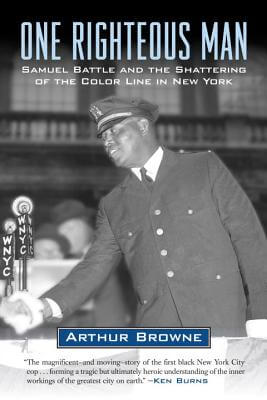 One Righteous Man: Samuel Battle and the Shattering of the Color Line in New York
One Righteous Man: Samuel Battle and the Shattering of the Color Line in New York
by Arthur BrowneBeacon Press (Jun 30, 2015)
Read Detailed Book Description
Winner of the Christopher Award and the New York City Book Award
A history of African Americans in New York City from the 1910’s to 1960, told through the life of Samuel Battle, the New York Police Department’s first black officer.
When Samuel Battle broke the color line as New York City’s first African American cop in the second decade of the twentieth century, he had to fear his racist colleagues as much as criminals. He had to be three times better than his white peers, and many times more resilient. His life was threatened. He was displayed like a circus animal. Yet, fearlessly claiming his rights, he prevailed in a four-decade odyssey that is both the story of one man’s courageous dedication to racial progress and a harbinger of the divisions between police and the people they serve that plague twenty-first-century America.
By dint of brains, brawn, and an outsized personality, Battle rode the forward wave of African American history in New York. He circulated among renowned turn-of-the-century entertainers and writers. He weathered threatening hostility as a founding citizen of black Harlem. He served as godfather to the regiment of black soldiers that won glory in World War I as the Hellfighters of Harlem. He befriended sports stars like Joe Louis, Jesse Owens, and Sugar Ray Robinson, and he bonded with legendary tap dancer Bill Bojangles Robinson. Along the way, he mentored an equally smart, equally tough young man in a still more brutal fight to integrate the New York Fire Department.
At the close of his career, Battle looked back proudly on the against-all-odd journey taken by a man who came of age as the son of former slaves in the South. He had navigated the corruption of Tammany Hall, the treachery of gangsters like Lucky Luciano and Dutch Schultz, the anything-goes era of Prohibition, the devastation of the Depression, and the race riots that erupted in Harlem in the 1930s and 1940s. By then he was a trusted aide to Mayor Fiorello La Guardia and a friend to First Lady Eleanor Roosevelt.
Realizing that his story was the story of race in New York across the first half of the century, Battle commissioned a biography to be written by none other than Langston Hughes, the preeminent voice of the Harlem Renaissance. But their eighty-thousand-word collaboration failed to find a publisher, and has remained unpublished since. Using Hughes’s manuscript, which is quoted liberally throughout this book, as well as his own archival research and interviews with survivors, Pulitzer Prizewinning journalist Arthur Browne has created an important and compelling social history of New York, revealed a fascinating episode in the life of Langston Hughes, and delivered the riveting life and times of a remarkable and unjustly forgotten man, setting Samuel Battle where he belongs in the pantheon of American civil rights pioneers.
 Black Prophetic Fire
Black Prophetic Fire
by Cornel WestBeacon Press (Oct 07, 2014)
Read Detailed Book Description
An unflinching look at nineteenth- and twentieth-century African American
leaders and their visionary legacies.
In an accessible, conversational format, Cornel West, with distinguished
scholar Christa Buschendorf, provides a fresh perspective on six
revolutionary African American leaders: Frederick Douglass, W. E. B. Du
Bois, Martin Luther King Jr., Ella Baker, Malcolm X, and Ida B. Wells. In
dialogue with Buschendorf, West examines the impact of these men and women
on their own eras and across the decades. He not only rediscovers the
integrity and commitment within these passionate advocates but also their
fault lines.
West,
in these illuminating conversations with the German scholar and thinker
Christa Buschendorf, describes Douglass as a complex man who is both “the
towering Black freedom fighter of the nineteenth century” and a product of
his time who lost sight of the fight for civil rights after the
emancipation. He calls Du Bois “undeniably the most important Black
intellectual of the twentieth century” and explores the more radical aspects
of his thinking in order to understand his uncompromising critique of the
United States, which has been omitted from the American collective memory.
West argues that our selective memory has sanitized and even
“Santaclausified” Martin Luther King Jr., rendering him less radical, and
has marginalized Ella Baker, who embodies the grassroots organizing of the
civil rights movement. The controversial Malcolm X, who is often seen as a
proponent of reverse racism, hatred, and violence, has been demonized in a
false opposition with King, while the appeal of his rhetoric and sincerity
to students has been sidelined. Ida B. Wells, West argues, shares Malcolm
X’s radical spirit and fearless speech, but has “often become the victim of
public amnesia.”
By providing new insights that humanize all of these well-known figures, in
the engrossing dialogue with Buschendorf, and in his insightful introduction
and powerful closing essay, Cornel West takes an important step in
rekindling the Black prophetic fire so essential in the age of Obama.
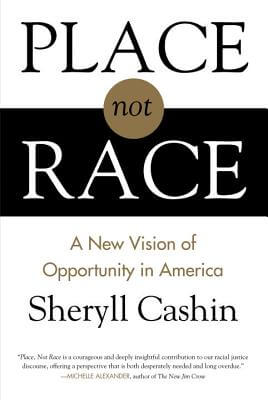 Place, Not Race: A New Vision of Opportunity in America
Place, Not Race: A New Vision of Opportunity in America
by Sheryll CashinBeacon Press (May 06, 2014)
Read Detailed Book Description
From a nationally recognized expert, a fresh and original argument for bettering affirmative action
Race-based affirmative action had been declining as a factor in university admissions even before the recent spate of related cases arrived at the Supreme Court. Since Ward Connerly kickstarted a state-by-state political mobilization against affirmative action in the mid-1990s, the percentage of four-year public colleges that consider racial or ethnic status in admissions has fallen from 60 percent to 35 percent. Only 45 percent of private colleges still explicitly consider race, with elite schools more likely to do so, although they too have retreated.
For law professor and civil rights activist Sheryll Cashin, this isn’t entirely bad news, because as she argues, affirmative action as currently practiced does little to help disadvantaged people. The truly disadvantaged black and brown children trapped in high-poverty environs are not getting the quality schooling they need in part because backlash and wedge politics undermine any possibility for common-sense public policies. Using place instead of race in diversity programming, she writes, will better amend the structural disadvantages endured by many children of color, while enhancing the possibility that we might one day move past the racial resentment that affirmative action engenders.
In Place, Not Race, Cashin reimagines affirmative action and champions place-based policies, arguing that college applicants who have thrived despite exposure to neighborhood or school poverty are deserving of special consideration. Those blessed to have come of age in poverty-free havens are not. Sixty years since the historic decision, we’re undoubtedly far from meeting the promise of Brown v. Board of Education, but Cashin offers a new framework for true inclusion for the millions of children who live separate and unequal lives. Her proposals include making standardized tests optional, replacing merit-based financial aid with need-based financial aid, and recruiting high-achieving students from overlooked places, among other steps that encourage cross-racial alliances and social mobility.
A call for action toward the long overdue promise of equality, Place, Not Race persuasively shows how the social costs of racial preferences actually outweigh any of the marginal benefits when effective race-neutral alternatives are available.
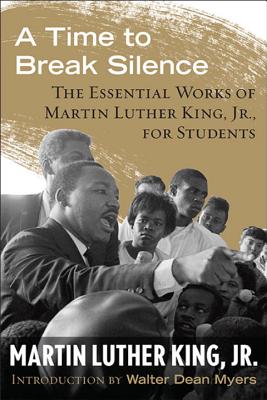 A Time to Break Silence: The Essential Works of Martin Luther King, Jr., for Students (King Legacy)
A Time to Break Silence: The Essential Works of Martin Luther King, Jr., for Students (King Legacy)
by Martin Luther King, Jr.Beacon Press (Nov 05, 2013)
Read Detailed Book Description
The first collection of Dr. Martin Luther King, Jr.’s essential writings for high school students and young people—with eighteen selections including "I Have a Dream," "Letter from Birmingham Jail," and "What Is Your Life’s Blueprint?"
†
“[Students] are in reality standing up for the best in the American dream… . One day historians will record this student movement as one of the most significant epics of our heritage.”
—from “The Time for Freedom Has Come”
†
A Time to Break Silence presents the Reverend Dr. Martin Luther King, Jr.’s most important writings and speeches—carefully selected by teachers across a variety of disciplines—in an accessible and user-friendly volume for students. Arranged thematically in six parts, the collection includes eighteen selections and is introduced by award-winning author Walter Dean Myers. Included are some of Dr. King’s most well-known and frequently taught classic works, like “Letter from Birmingham Jail” and “I Have a Dream,” as well as lesser-known pieces such as “The Sword that Heals” and “What Is Your Life’s Blueprint?,” which speak to issues young people face today.
†
Teachers guide and companion curriculum developed by the Martin Luther King, Jr. Research and Education Institute at Stanford University available online through www.thekinglegacy.org/teachers
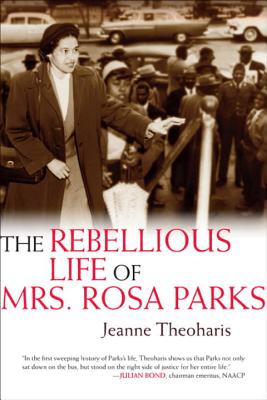 The Rebellious Life of Mrs. Rosa Parks
The Rebellious Life of Mrs. Rosa Parks
by Jeanne TheoharisBeacon Press (Jan 29, 2013)
Read Detailed Book Description
The definitive political biography of Rosa Parks examines her six decades of activism, challenging perceptions of her as an accidental actor in the civil rights movement
Presenting a corrective to the popular notion of Rosa Parks as the quiet seamstress who, with a single act, birthed the modern civil rights movement, Theoharis provides a revealing window into Parks’s politics and years of activism. She shows readers how this civil rights movement radical sought—for more than a half a century—to expose and eradicate the American racial-caste system in jobs, schools, public services, and criminal justice.
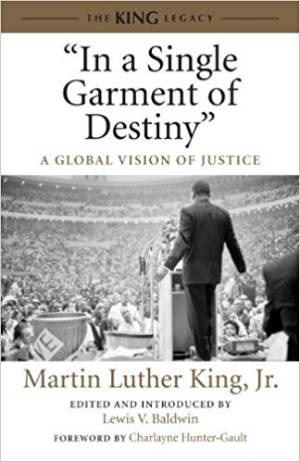 “
In a Single Garment of Destiny:” A Global Vision of Justice
“
In a Single Garment of Destiny:” A Global Vision of Justice
by Martin Luther King, Jr.Beacon Press (Jan 15, 2013)
Read Detailed Book Description
An unprecedented and timely collection that captures the global vision of Dr. King—in his own words
†
Too many people continue to think of Dr. King only as “a southern civil rights leader” or “an American Gandhi,” thus ignoring his impact on poor and oppressed people around the world. "In a Single Garment of Destiny" is the first book to treat King’s positions on global liberation struggles through the prism of his own words and activities.
†
From the pages of this extraordinary collection, King emerges not only as an advocate for global human rights but also as a towering figure who collaborated with Eleanor Roosevelt, Albert J. Luthuli, Thich Nhat Hanh, and other national and international figures in addressing a multitude of issues we still struggle with today—from racism, poverty, and war to religious bigotry and intolerance. Introduced and edited by distinguished King scholar Lewis Baldwin, this volume breaks new ground in our understanding of King.
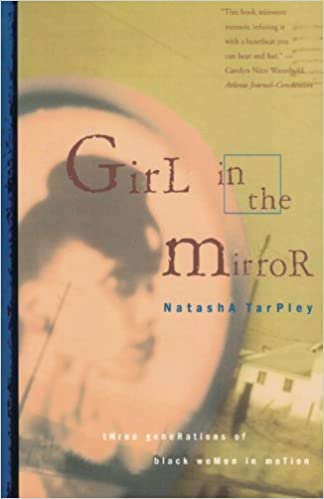 Three Generations of Black Women in Motion
Three Generations of Black Women in Motion
by Natasha Anastasia TarpleyBeacon Press (Jan 13, 2013)
Read Detailed Book Description
Originally Published in 1998 (Beacon)
A Creative nonfiction memoir about the lives and loves of three generations of American American women.
“Some say our story begins in the middle of an ocean, in the belly of a monster, at the mercy of demons. Others say that we began with a hammer and a nail; that we laid our bodies down and raised cities along our spines. But I say it goes deeper than that, deeper than cotton fields and human cargoes, the thick and heavy links of a history we’re constantly trying to break, to desire. The urge that stirs you in the middle of the night, grabs you by the spine and jerks your head upright. The story begins here, when we realize that we are no longer asleep, and the beat of our hearts sounds just like the beat of a faraway drum. And it is at this moment of unrest, when our hearts refuse to allow us to he still, that we realize what we must do, which is to gather ourselves up and move.”
Girl in the Mirror is the story of the lives, loves and migrations of three generations of American American women: a grandmother, mother and daughter-on a journey in search of self.
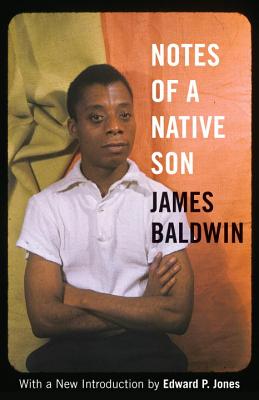 Notes of a Native Son
Notes of a Native Son
by James BaldwinBeacon Press (Nov 20, 2012)
Read Detailed Book Description
In an age of Black Lives Matter, James Baldwin’s essays on life in Harlem, the protest novel, movies, and African Americans abroad are as powerful today as when they were first written. With documentaries like I Am Not Your Negro bringing renewed interest to Baldwin’s life and work, Notes of a Native Son serves as a valuable introduction.
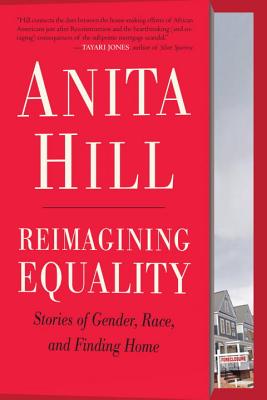 Reimagining Equality: Stories of Gender, Race, and Finding Home
Reimagining Equality: Stories of Gender, Race, and Finding Home
by Anita HillBeacon Press (Sep 04, 2012)
Read Detailed Book Description
A searing portrait “of the ways in which black men and women have struggled to surmount injustice to own homes”—from the heroic lawyer who spoke out against Clarence Thomas (The New York Times Book Review)
In this “highly readable and deeply analytical” work, attorney Anita Hill examines the relationship between home ownership and the American Dream through the lens of race and gender (Library Journal). Through the stories of remarkable African American women—including her own great-great-grandmother, playwright Lorraine Hansberry, and Baltimore beauty-shop owner and housing-crisis survivor Anjanette Booker—she demonstrates that the inclusive democracy our Constitution promises must be conceived with home in mind.
From slavery to the Great Migration to the subprime mortgage meltdown, Reimagining Equality takes us on a journey that sparks a new conversation about what it means to be at home in America and presents concrete proposals that encourage us to reimagine equality.
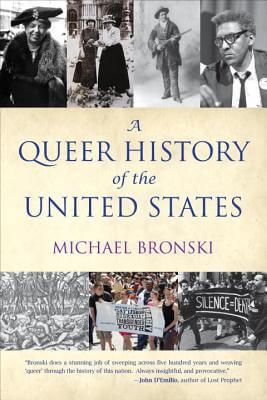 A Queer History of the United States (ReVisioning American History)
A Queer History of the United States (ReVisioning American History)
by Michael BronskiBeacon Press (May 15, 2012)
Read Detailed Book Description
Winner of a 2012 Stonewall Book Award in nonfiction
A Queer History of the United States is more than a “who’s who” of queer history: it is a book that radically challenges how we understand American history. Drawing upon primary-source documents, literature, and cultural histories, scholar and activist Michael Bronski charts the breadth of lesbian, gay, bisexual, and transgender history, from 1492 to the 1990s.
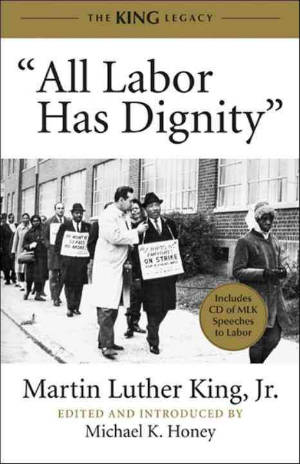 “All Labor Has Dignity”
“All Labor Has Dignity”
by Martin Luther King, Jr.Beacon Press (Jan 10, 2012)
Read Detailed Book Description
An unprecedented and timely collection of Dr. King’s speeches on labor rights and economic justice
†
Covering all the civil rights movement highlights—Montgomery, Albany, Birmingham, Selma, Chicago, and Memphis—award-winning historian Michael K. Honey introduces and traces Dr. King’s dream of economic equality. Gathered in one volume for the first time, the majority of these speeches will be new to most readers. The collection begins with King’s lectures to unions in the 1960s and includes his addresses made during his Poor People’s Campaign, culminating with his momentous "Mountaintop" speech, delivered in support of striking black sanitation workers in Memphis. Unprecedented and timely, "All Labor Has Dignity" will more fully restore our understanding of King’s lasting vision of economic justice, bringing his demand for equality right into the present.
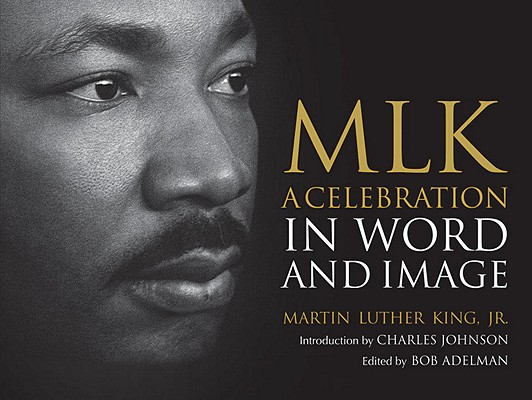 MLK: A Celebration in Word and Image
MLK: A Celebration in Word and Image
by Martin Luther King, Jr.Beacon Press (Oct 25, 2011)
Read Detailed Book Description
†MLK: A Celebration in Word and Image is an unprecedented collection of black-and-white photographs combined with stirring quotations by Dr. Martin Luther King, Jr.
†
This treasured collection includes images by legendary photographers such as Henri Cartier-Bresson, Bob Adelman, and Flip Schulke, and is an unparalleled photobiography †that presents intimate moments from King’s personal and public journey. We see King in all his manifestations—as a new father and doting husband, as a civil rights champion leading racial protests, and as a charismatic speaker preaching electrifying sermons. Triumphant events like King delivering his “I Have a Dream” speech and marching in Montgomery are beautifully captured, †as are private moments of him reflecting on his Nobel Peace Prize or working in his study.
†
Threaded together, these words and †images chronicle how Dr. King was not only a driving force †for change but also †a continually evolving individual. A collection to savor and celebrate, these great photographs are an enduring testament to the life and legacy of an international icon.
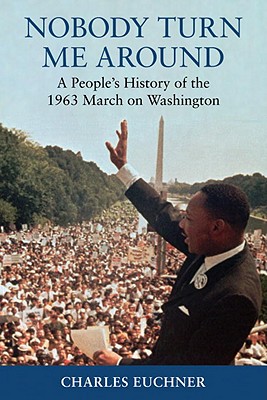 Nobody Turn Me Around: A Peopleís History of the 1963 March on Washington
Nobody Turn Me Around: A Peopleís History of the 1963 March on Washington
by Charles EuchnerBeacon Press (Jul 12, 2011)
Read Detailed Book Description
On August 28, 1963, over a quarter-million people—two-thirds black and one-third white—held the greatest civil rights demonstration ever. In this major reinterpretation of the Great Day—the peak of the movement—Charles Euchner brings back the tension and promise of the march. Building on countless interviews, archives, FBI files, and private recordings, this hour-by-hour account offers intimate glimpses into the lives of those key players and ordinary people who converged on the National Mall to fight for civil rights in the March on Washington.
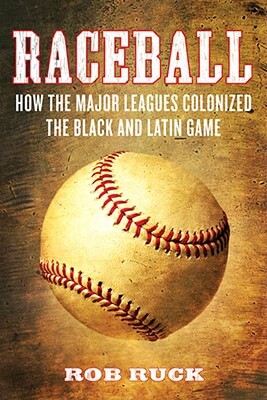 Raceball: How The Major Leagues Colonized The Black And Latin Game
Raceball: How The Major Leagues Colonized The Black And Latin Game
by Rob RuckBeacon Press (Mar 01, 2011)
Read Detailed Book Description
The colliding histories of black and Latin ballplayers in the major leagues have traditionally been told as a story of their shameful segregation and redemptive integration. Jackie Robinson jumped baseball’s color line to much fanfare, but integration was painful as well as triumphal. It gutted the once-vibrant Negro Leagues and often subjected Latin players to Jim Crow racism.
†
Today, Major League Baseball tightens its grasp around the Caribbean’s burgeoning baseball academies, while at home it embraces—and exploits—the legacy of the Negro Leagues. Award-winning historian Rob Ruck explains the catalyst for this sea change while breaking down the consequences that cut across society. By looking at this history from the vantage point of black America and the Caribbean, Raceball unveils a fresh and stunning truth: baseball has never been stronger as a business, never weaker as a game.
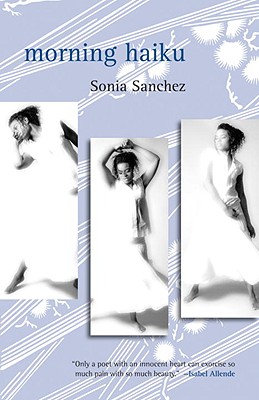 Morning Haiku
Morning Haiku
by Sonia SanchezBeacon Press (Jan 25, 2011)
Read Detailed Book Description
From a leading writer of the Black Arts Movement, poems of commemoration and loss for readers of all ages
†
A collection of haiku that celebrates the gifts of life and mourns the deaths of revered African American figures in the worlds of music, literature, art, and activism.
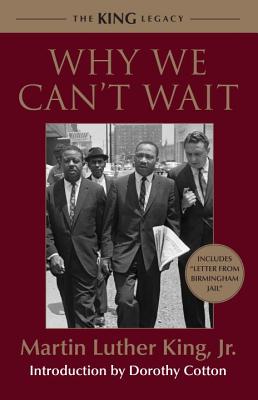 Why We Canít Wait (King Legacy)
Why We Canít Wait (King Legacy)
by Martin Luther King, Jr.Beacon Press (Jan 11, 2011)
Read Detailed Book Description
Dr. King’s best-selling account of the civil rights movement in Birmingham during the spring and summer of 1963
†
On April 16, 1963, as the violent events of the Birmingham campaign unfolded in the city’s streets, Dr. Martin Luther King, Jr., composed a letter from his prison cell in response to local religious leaders’ criticism of the campaign. The resulting piece of extraordinary protest writing, “Letter from Birmingham Jail,” was widely circulated and published in numerous periodicals. After the conclusion of the campaign and the March on Washington for Jobs and Freedom in 1963, King further developed the ideas introduced in the letter in Why We Can’t Wait, which tells the story of African American activism in the spring and summer of 1963. During this time, Birmingham, Alabama, was perhaps the most racially segregated city in the United States, but the campaign launched by King, Fred Shuttlesworth, and others demonstrated to the world the power of nonviolent direct action.
†
Often applauded as King’s most incisive and eloquent book, Why We Can’t Wait recounts the Birmingham campaign in vivid detail, while underscoring why 1963 was such a crucial year for the civil rights movement. Disappointed by the slow pace of school desegregation and civil rights legislation, King observed that by 1963—during which the country celebrated the one-hundredth anniversary of the Emancipation Proclamation—Asia and Africa were “moving with jetlike speed toward gaining political independence but we still creep at a horse-and-buggy pace.”
†
King examines the history of the civil rights struggle, noting tasks that future generations must accomplish to bring about full equality, and asserts that African Americans have already waited over three centuries for civil rights and that it is time to be proactive: “For years now, I have heard the word ‘Wait!’ It rings in the ear of every Negro with piercing familiarity. This ‘Wait’ has almost always meant ‘Never.’ We must come to see, with one of our distinguished jurists, that ‘justice too long delayed is justice denied.’”
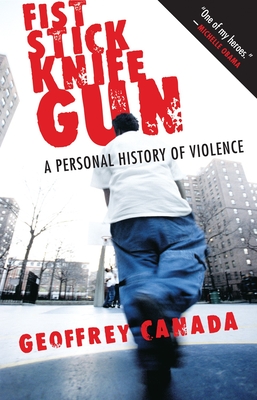 Fist Stick Knife Gun: A Personal History of Violence (Revised)
Fist Stick Knife Gun: A Personal History of Violence (Revised)
by Geoffrey CanadaBeacon Press (Sep 28, 2010)
Read Detailed Book Description
A candid and riveting memoir from the founder of Harlem Children’s Zone, taking readers through his Canada in which violence stalked every street corner.
Long before the avalanche of praise for his work—from Oprah Winfrey, from President Bill Clinton, from President Barack Obama—long before he became known for his talk show appearances, Members Project spots, and documentaries like Waiting for "Superman", Geoffrey Canada was a small boy growing up scared on the mean streets of the South Bronx. His childhood world was one where “sidewalk boys” learned the codes of the block and were ranked through the rituals of fist, stick, and knife. Then the streets changed, and the stakes got even higher.
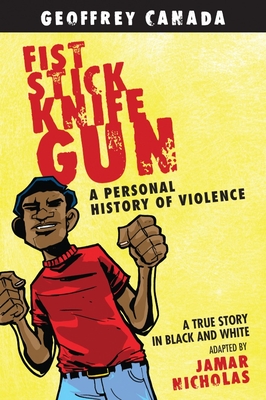 Fist Stick Knife Gun (Graphic Novel): A Personal History of Violence
Fist Stick Knife Gun (Graphic Novel): A Personal History of Violence
by Geoffrey CanadaBeacon Press (Sep 14, 2010)
Read Detailed Book Description
Long before President Barack Obama praised his work as “an all-encompassing, all-hands-on-deck anti-poverty effort that is literally saving a generation of children,” and First Lady Michelle Obama called him “one of my heroes,” Geoffrey Canada was a small and scared boy growing up in the South Bronx. His childhood world was one where “sidewalk boys” learned the codes of the block and were ranked through the rituals of fist, stick, knife, and, finally, gun. In a stunning pairing, acclaimed comics creator Jamar Nicholas presents Canada’s raw and riveting account, one of the most authentic and important true stories of urban violence ever told.
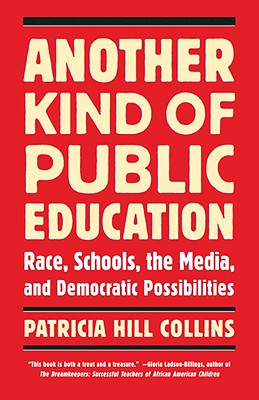 Another Kind of Public Education: Race, Schools, the Media, and Democratic Possibilities
Another Kind of Public Education: Race, Schools, the Media, and Democratic Possibilities
by Patricia Hill CollinsBeacon Press (Apr 01, 2010)
Read Detailed Book Description
An ambitious book on how schools, race, and the media intertwine in the twenty-first century
 Three Plays: The Political Theater of Howard Zinn: Emma, Marx in Soho, Daughter of Venus
Three Plays: The Political Theater of Howard Zinn: Emma, Marx in Soho, Daughter of Venus
by Howard ZinnBeacon Press (Mar 01, 2010)
Read Detailed Book Description
World-renowned historian Howard Zinn has turned to drama to explore the legacy of Karl Marx and Emma Goldman and to delve into the intricacies of political and social conscience perhaps more deeply than traditional history permits. Three Plays brings together all this work, including the previously unpublished Daughter of Venus, along with a new introductory essay on political theater, and prefaces to each of the plays.
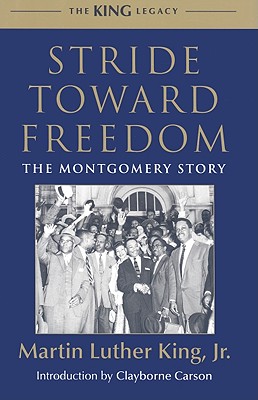 Stride Toward Freedom: The Montgomery Story (King Legacy)
Stride Toward Freedom: The Montgomery Story (King Legacy)
by Martin Luther King, Jr.Beacon Press (Jan 01, 2010)
Read Detailed Book Description
Martin Luther King, Jr.’s account of the first successful large-scale application of nonviolence resistance in America is comprehensive, revelatory, and intimate. King described his book as "the chronicle of fifty thousand Negroes who took to heart the principles of nonviolence, who learned to fight for their rights with the weapon of love, and who, in the process, acquired a new estimate of their own human worth." It traces the phenomenal journey of a community, and shows how the twenty-six-year-old Dr. King, with his conviction for equality and nonviolence, helped transformed the nation-and the world.
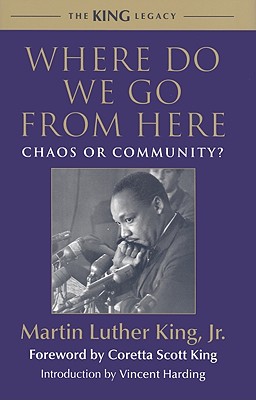 Where Do We Go From Here: Chaos Or Community? (King Legacy)
Where Do We Go From Here: Chaos Or Community? (King Legacy)
by Martin Luther King, Jr.Beacon Press (Jan 01, 2010)
Read Detailed Book Description
In 1967, Dr. Martin Luther King, Jr., isolated himself from the demands of the civil rights movement, rented a house in Jamaica with no telephone, and labored over his final manuscript. In this significantly prophetic work, which has been unavailable for more than ten years, we find King’s acute analysis of American race relations and the state of the movement after a decade of civil rights efforts. Here he lays out his thoughts, plans, and dreams for America’s future, including the need for better jobs, higher wages, decent housing, and quality education. With a universal message of hope that continues to resonate, King demanded an end to global suffering, powerfully asserting that humankind-for the first time-has the resources and technology to eradicate poverty.
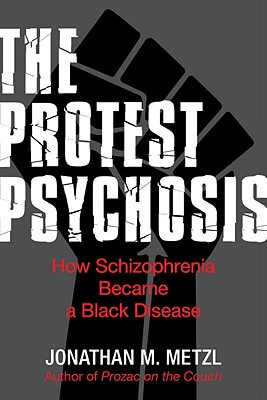 The Protest Psychosis: How Schizophrenia Became A Black Disease
The Protest Psychosis: How Schizophrenia Became A Black Disease
by Jonathan MetzlBeacon Press (Jan 01, 2010)
Read Detailed Book Description
A powerful account of how cultural anxieties about race shaped American notions of mental illness
The civil rights era is largely remembered as a time of sit-ins, boycotts, and riots. But a very different civil rights history evolved at the Ionia State Hospital for the Criminally Insane in Ionia, Michigan. In The Protest Psychosis, psychiatrist and cultural critic Jonathan Metzl tells the shocking story of how schizophrenia became the diagnostic term overwhelmingly applied to African American protesters at Ionia—for political reasons as well as clinical ones. Expertly sifting through a vast array of cultural documents, Metzl shows how associations between schizophrenia and blackness emerged during the tumultuous decades of the 1960s and 1970s—and he provides a cautionary tale of how anxieties about race continue to impact doctor-patient interactions in our seemingly postracial America.
From the Trade Paperback edition.
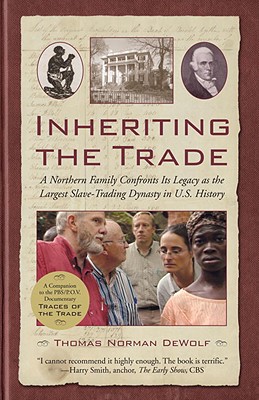 Inheriting the Trade: A Northern Family Confronts Its Legacy as the Largest Slave-Trading Dynasty in U.S. History
Inheriting the Trade: A Northern Family Confronts Its Legacy as the Largest Slave-Trading Dynasty in U.S. History
by Thomas Norman DeWolfBeacon Press (Jan 01, 2009)
Read Detailed Book Description
In 2001, Thomas DeWolf discovered that he was related to the most successful slave-trading family in U.S. history, responsible for transporting at least ten thousand Africans. This is his memoir of the journey in which ten family members retraced their ancestors’ steps through the notorious triangle trade route—from New England to West Africa to Cuba—and uncovered the hidden history of New England and the other northern states.
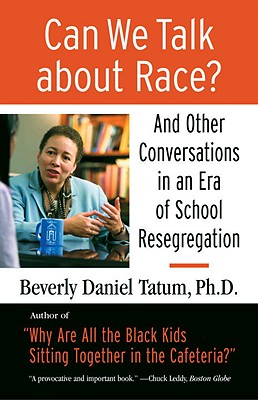 Can We Talk About Race?: And Other Conversations In An Era Of School Resegregation
Can We Talk About Race?: And Other Conversations In An Era Of School Resegregation
by Beverly Daniel TatumBeacon Press (Apr 01, 2008)
Read Detailed Book Description
Major new reflections on race and schools—by the best-selling author of “Why Are All the Black Kids Sitting Together in the Cafeteria?“
A Simmons College/Beacon Press Race, Education, and Democracy Series Book
Beverly Daniel Tatum emerged on the national scene in 1997 with “Why Are All the Black Kids Sitting Together in the Cafeteria?,“ a book that spoke to a wide audience about the psychological dynamics of race relations in America. Tatum’s unique ability to get people talking about race captured the attention of many, from Oprah Winfrey to President Clinton, who invited her to join him in his nationally televised dialogues on race.
In her first book since that pathbreaking success, Tatum starts with a warning call about the increasing but underreported resegregation of America. A selfdescribed “integration baby“—she was born in 1954—Tatum sees our growing isolation from each other as deeply problematic, and she believes that schools can be key institutions for forging connections across the racial divide.
In this ambitious, accessible book, Tatum examines some of the most resonant issues in American education and race relations:
- The need of African American students to see themselves reflected in curricula and institutions
- How unexamined racial attitudes can negatively affect minority-student achievement
- The possibilities—and complications—of intimate crossracial friendships
Tatum approaches all these topics with the blend of analysis and storytelling that make her one of our most persuasive and engaging commentators on race.
Can We Talk About Race? launches a collaborative lecture and book series between Beacon Press and Simmons College, which aims to reinvigorate a crucial national public conversation on race, education and democracy.
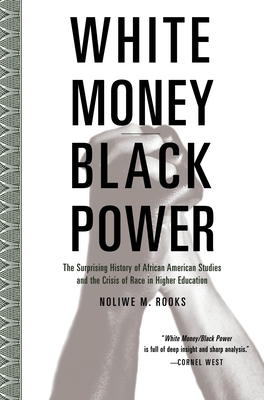 White Money/Black Power: The Surprising History of African American Studies and the Crisis of Race in Higher Education
White Money/Black Power: The Surprising History of African American Studies and the Crisis of Race in Higher Education
by Noliwe RooksBeacon Press (May 01, 2007)
Read Detailed Book Description
The history of African American studies is often told as a heroic tale, with compelling images of black power and passionate African American students who refused to take no for an answer. Noliwe M. Rooks argues for the recognition of another story, which proves that many of the programs that survived actually began as a result of white philanthropy. With unflinching honesty, Rooks shows that the only way to create a stable future for African American studies is by confronting its complex past.
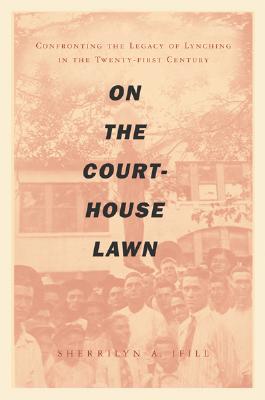 On the Courthouse Lawn: Confronting the Legacy of Lynching in the Twenty-first Century
On the Courthouse Lawn: Confronting the Legacy of Lynching in the Twenty-first Century
by Sherrilyn A. IfillBeacon Press (Feb 15, 2007)
Read Detailed Book Description
Nearly 5,000 black Americans were lynched between 1890 and 1960. Over forty years later, Sherrilyn Ifill’s On the Courthouse Lawn examines the numerous ways that this racial trauma still resounds across the United States. While the lynchings and their immediate aftermath were devastating, the little-known contemporary consequences, such as the marginalization of political and economic development for black Americans, are equally pernicious.
On the Courthouse Lawn investigates how the lynchings implicated average white citizens, some of whom actively participated in the violence, while many others witnessed the lynchings but did nothing to stop them. Ifill observes that this history of complicity has become embedded in the social and cultural fabric of local communities, who either supported, condoned, or ignored the violence. She traces the lingering effects of two lynchings in Maryland to illustrate how ubiquitous this history is and issues a clarion call for American communities with histories of racial violence to be proactive in facing this legacy today.
Inspired by South Africa’s Truth and Reconciliation Commission, as well as by techniques of restorative justice, Ifill provides concrete ideas to help communities heal, including placing gravestones on the unmarked burial sites of lynching victims, issuing public apologies, establishing mandatory school programs on the local history of lynching, financially compensating those whose family homes or businesses were destroyed in the aftermath of lynching, and creating commemorative public spaces. Because the contemporary effects of racial violence are experienced most intensely in local communities, Ifill argues that reconciliation and reparation efforts must also be locally based in order to bring both black and white Americans together in an efficacious dialogue.
A landmark book, On the Courthouse Lawn is a much-needed and urgent road map for communities finally confronting lynching’s long shadow by embracing pragmatic reconciliation and reparation efforts.
?Professor Ifill has written a sobering and eye-opening book on one of America’s darkest secrets. On the Courthouse Lawn offers a compelling examination of lynchings and describes the failure of people and institutions to adequately address one of America’s tragedies. Racial amnesia would suggest we forget this history. Professor Ifill assures us that we cannot?and should not?forget it. This is a must read for anyone willing to examine our history carefully and learn from it.” ?Professor Charles J. Ogletree, Jr., Jesse Climenko Professor of Law, Harvard Law School, and executive director of the Charles Hamilton Houston Institute for Race and Justice
?On the Courthouse Lawn is an elegantly written and persuasively argued case for local communities to confront their history of lynching and racial violence as a means of healing race relations. Explaining how Truth and Reconciliation worked in South Africa, Ifill explores the possibilities and offers concrete advice on how it could be widely employed in the United States. It is certainly worth trying.” ?Mary Frances Berry, Geraldine R. Segal Professor of American Social Thought and professor of History, University of Pennsylvania
?In calm, objective but no less moving detail, Sherrilyn Ifill’s book provides the stories that illuminate the photographs and postcards of lynchings, the punishment meted out to some 5,000 black people deemed guilty without trial for matters large and small during the first half of the twentieth century. Too late for justice for the victims of lynch law, Professor Ifill urges that an American version of South Africa’s Truth and Reconciliation Commission could bring long-denied acknowledgment to whites and a measure of consolation to blacks.” ?Derrick Bell, author of Faces at the Bottom of the Well and Ethical Ambition
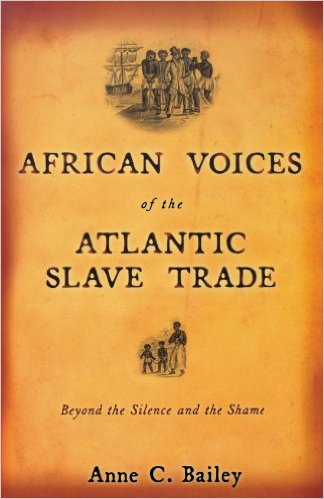 African Voices of the Atlantic Slave Trade: Beyond the Silence and the Shame
African Voices of the Atlantic Slave Trade: Beyond the Silence and the Shame
by Anne C. BaileyBeacon Press (Jan 01, 2006)
Read Detailed Book Description
It’s an awful story. It’s an awful story. Why do you want to bring this up now?—Chief Awusa of Atorkor
For centuries, the story of the Atlantic slave trade has been filtered through the eyes and records of white Europeans. In this watershed book, historian Anne C. Bailey focuses on memories of the trade from the African perspective. African chiefs and other elders in an area of southeastern Ghana-once famously called "the Old Slave Coast"-share stories that reveal that Africans were traders as well as victims of the trade.
Bailey argues that, like victims of trauma, many African societies now experience a fragmented view of their past that partially explains the blanket of silence and shame around the slave trade. Capturing scores of oral histories that were handed down through generations, Bailey finds that, although Africans were not equal partners with Europeans, even their partial involvement in the slave trade had devastating consequences on their history and identity. In this unprecedented and revelatory book, Bailey explores the delicate and fragmented nature of historical memory.
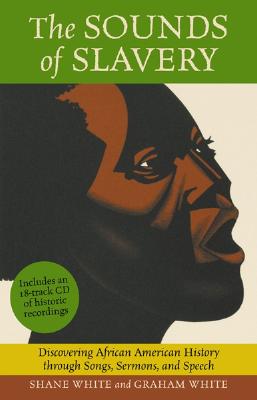 The Sounds of Slavery: Discover African American History Through Songs, Sermons, and Speech
The Sounds of Slavery: Discover African American History Through Songs, Sermons, and Speech
by Shane WhiteBeacon Press (Apr 15, 2005)
Read Detailed Book Description
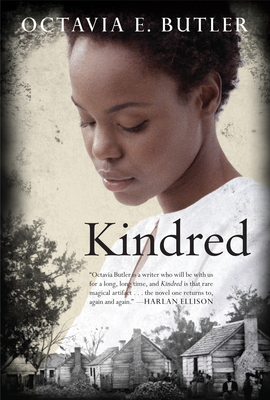 Kindred
Kindred
by Octavia ButlerBeacon Press (Feb 01, 2004)
Read Detailed Book Description
Dana, a modern black woman, is celebrating her twenty-sixth birthday with her new husband when she is snatched abruptly from her home in California and transported to the antebellum South. Rufus, the white son of a plantation owner, is drowning, and Dana has been summoned to save him. Dana is drawn back repeatedly through time to the slave quarters, and each time the stay grows longer, more arduous, and more dangerous until it is uncertain whether or not Dana’s life will end, long before it has a chance to begin.
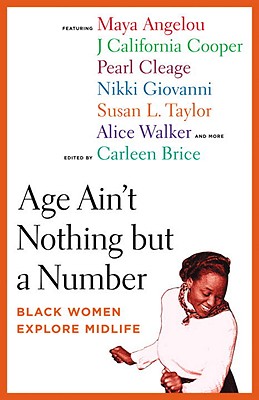 Age Ainít Nothing But a Number: Black Women Explore Midlife
Age Ainít Nothing But a Number: Black Women Explore Midlife
by Carleen BriceBeacon Press (May 16, 2003)
Read Detailed Book Description
Maya Angelou, J. California Cooper, Pearl Cleage, Nikki Giovanni, Susan L. Taylor, Alice Walker, and more.
Finally, a collection that celebrates, considers, contemplates, even criticizes’ midlife’ from a black woman’s point of view. Age Ain’t Nothing but a Number ranges over every aspect of black women’s lives: personal growth, family and friendship, love and sexuality, health, beauty, illness, spirituality, creativity, financial independence, work, and scores of other topics.
Midlife today isn’t your grandmother’s’ change of life.’ Today, black women call hot flashes ’power surges,’ and menopause, the ’pause that refreshes.’ These days, middle-aged women may be newlyweds or new mothers, as well as grandmothers or widows. They may experience the empty-nest syndrome and then the ’return-to-the-nest syndrome’ as adult children move back home. They may navigate the field of Internet dating, travel the world, teach homeless women, take up pottery, or study international business.
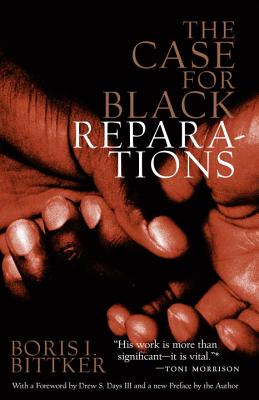 Case for Black Reparations
Case for Black Reparations
by Boris I. BittkerBeacon Press (May 15, 2003)
Read Detailed Book Description
The groundbreaking first book on black reparations, essential reading for the twenty-first century
Originally published in 1972, Boris Bittker’s riveting study of America’s debt to African-Americans was well ahead of its time. Published by Toni Morrison when she was an editor, the book came from an unlikely source: Bittker was a white professor of law at Yale University who had long been ambivalent about the idea of reparations. Through his research into the history and theory of reparations-namely the development and enforcement of lawsdesigned to compensate groups for injustices imposed on them-he found that it wasn’t a “crazy, far-fetched idea.” In fact, beginning with post-Civil War demands for forty acres and a mule, African-American thinkers have long made the case that compensatory measures are justified not only for the injury of slavery but for the further setbacks of almost a century of Jim Crow laws and forced school and job segregation, measures that effectively blocked African-Americans from enjoying the privileges of citizenship.
The publication of important recent books by black scholars like Randall Robinson and the growth of a highly vocal reparations movement in the beginning of this century make this book, long unavailable, essential reading. Bittker carefully illuminates the historical provisions and statutes for legitimate claims to reparations, the national and international precedents for such claims, and most important, the obstacles to a national policy of reparations.
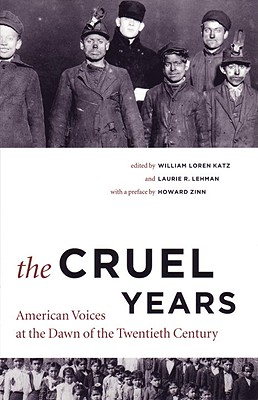 The Cruel Years: American Voices at the Dawn of the Twentieth Century
The Cruel Years: American Voices at the Dawn of the Twentieth Century
by William L. KatzBeacon Press (Apr 15, 2003)
Read Detailed Book Description
The Cruel Years provides readers with a vivid picture of what life was like a hundred years ago, not for the rich and famous but for ordinary working Americans. The story is told in the words of twenty-two fascinating people who lived by laboring long hours at farms and factories and mines. A preface by Howard Zinn and an introduction by William Loren Katz provide an easy-to-follow historical map that places these hard-hitting, first-person narratives in the context of their troubled times and within the larger picture of U.S. growth and development.
Here are the no-nonsense words of a young immigrant trying to survive as a sweatshop operator in New York City, a hard working farmer’s wife who has writing ambitions; a black southern sharecropper seeking fulfillment under a new system of slavery; a young Puerto Rican passing the Statue of Liberty and ready for new challenges; a Chinese immigrant, a Mexican immigrant, and a Japanese immigrant struggling to rise from lower rungs on the social and economic ladder; an Irish girl of sixteen deciding to become a political agitator; a black southern woman trying to fend off the hurts of Jim Crow; a coal miner telling of the lethal dangers of his work; and a black cowhand rejoicing in the thrill of the cattle trails.
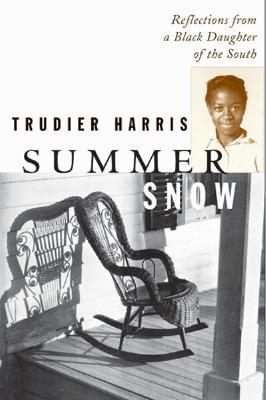 Summer Snow: Reflections from a Black Daughter of the South
Summer Snow: Reflections from a Black Daughter of the South
by Trudier HarrisBeacon Press (Apr 15, 2003)
Read Detailed Book Description
A wide-ranging, spirited collection of personal essays about growing up black and Southern
Like Maya Angelou and bell hooks before her, Trudier Harris explores her complicated identity as a black woman in the American South. By turns amusing and probing, Summer Snow lays out in a series of linked essays the formative experiences that shaped Harris into the writer and intellectual she has become.
With passion and eloquence, Harris writes about the creation of her unique first name, how porch-sitting is in fact a creative Southern tradition, and how insecurities over her black hair ("the ubiquitous hair") factored into her self-image. She writes about being a "black nerd" as a child, and how the black church influenced her in her early years. But she also writes about more troubling topics, such as the price blacks have paid for integration, and the "staying power of racism." In one moving piece, Harris remembers a white teenager propositioning her for sex in exchange for five dollars. Unflinching in her assessment of white Southern culture, yet deeply attached to a South
many black intellectuals have abandoned, Harris in Summer Snow takes readers on a surprising tour of one woman’s life, loves, and lessons.
Trudier Harris is the author of numerousbooks, including Saints, Sinners, Saviors: Strong Black Women in African American Literature and Fiction and Folklore: The Novels of Toni Morrison. She is currently a professor of English at the University of North Carolina, Chapel Hill.
Praise for Summer Snow:
"Stimulating and provocative, SUMMER SNOW resonates with folkloric energy and vividly evocative prose. Trudier Harris’s presence and voice vibrate through this journey, guiding her reader with the sheer force of her rigor, grace, and intelligence as well as a goodly amount of wry humor and wit. A reader’s dream-book, reminding us all of the resonant claim of southern spaces."
— Karla Holloway, William Kenan Professor of English at Duke University, author of numerous books, including Passed On.
"Trudier Harris speaks of the "cotton-pickin’ authority" of those in her childhood who earned respect because of their life-long backbreaking labors in the fields. Harris has translated that authority into one of her own, the authority of her words. Because of this author, we see, feel, understand and celebrate our people, who created—through sheer wit and will—a culture that defeated the dehumanization of slavery by keeping us, body and soul alive. A wonderful book you have to read to believe."
—Toi Derricotte, author of The Black Notebooks.
"Noon can be as blinding as midnight; snow no less than sun can cause a
vision distortion. Like Zora Neale Hurston, another great daughter of
the South, Harris lets her vision be tempered by her love. And make no
mistake, the South of Black Americans, is a love story. SUMMER SNOW
reminds us of that… causes us to remember that… lets us celebrate
that."
—Nikki Giovanni
"SUMMER SNOW is the classic we have been waiting for—the classic that
only a "Black daughter of the South" could have written. It has dance and song, color and texture, pathos and humor, analysis and introspection, and a gallery of fascinating women and men
we can never forget."
—Gloria Wade Gayles, author of PUSHED BACK TO STRENGTH
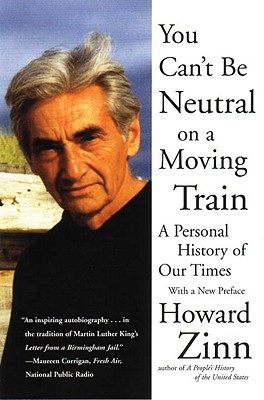 You Canít Be Neutral On A Moving Train: A Personal History Of Our Times
You Canít Be Neutral On A Moving Train: A Personal History Of Our Times
by Howard ZinnBeacon Press (Sep 05, 2002)
Read Detailed Book Description
Howard Zinn, author of A People’s History of the United States, tells his personal stories about more than thirty years of fighting for social change, from teaching at Spelman College to recent protests against war.
A former bombardier in WWII, Zinn emerged in the civil rights movement as a powerful voice for justice. Although he’s a fierce critic, he gives us reason to hope that by learning from history and engaging politically, we can make a difference in the world.
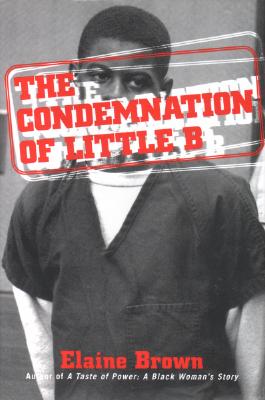 The Condemnation of Little B.
The Condemnation of Little B.
by Elaine BrownBeacon Press (Feb 18, 2002)
Read Detailed Book Description
Through the story of a thirteen-year-old black boy condemned to life in prison, Elaine Brown exposes the "New Age" racism that effectively condemns millions of poor African-Americans to a third world life. The story of "Little B" is riveting, a stunning example of the particular burden racism imposes on black youths. Most astonishing, almost all of the officials involved in bringing him to "justice" are black.
Michael Lewis was officially declared a ward of the state at age eleven, and then systematically ignored until his arrest for murder. Brown wondered how this boy could possibly have aroused so much public resentment, why he was being tried (and roundly condemned, labeled a "super-predator") in the press. Then she met Michael and began investigating his case on her own. Brown adeptly builds a convincing case that the prosecution railroaded Michael, looking for a quick, symbolic conviction. His innocence is almost incidental to the overwhelming evidence that the case was unfit for trial. Little B was convicted long before he came to court, and effectively sentenced years before, when the "safety net" allowed him to slip silently down. Brown cites studies and cases from all over America that reveal how much more likely youth of color are to be convicted of crimes and to serve long—even life—sentences, and how deeply the new black middle class is implicated in this devastating reality.
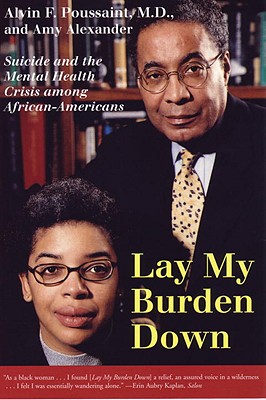 Lay My Burden Down: Suicide and the Mental Health Crisis Among African-Americans
Lay My Burden Down: Suicide and the Mental Health Crisis Among African-Americans
by Alvin Poussaint and Amy AlexanderBeacon Press (Oct 12, 2001)
Read Detailed Book Description
Through stories (including their own), interviews, and analysis of the most recent data available, Dr. Alvin Poussaint and journalist Amy Alexander offer a groundbreaking look at “posttraumatic slavery syndrome,” the unique physical and emotional perils for black people that are the legacy of slavery and persistent racism. They examine the historical, cultural, and social factors that make many blacks reluctant to seek health care, and cite ways that everyone from the layperson to the health care provider can help
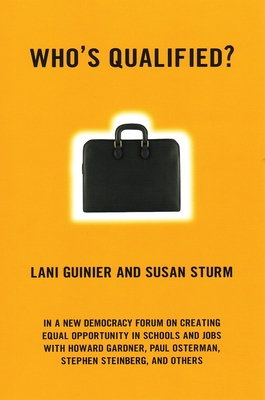 Whoís Qualified?
Whoís Qualified?
by Lani GuinierBeacon Press (Sep 01, 2001)
Read Detailed Book Description
Affirmative action originated as a plan to correct the historical disadvantage of women and people of color—to make the system more fair. Yet, for over twenty years, it has been repeatedly attacked for being unfair to whites, and even un-American. Guinier and Sturm begin with a critique of affirmative action as it stands now, arguing that a system of selection that determines ’qualification’ from test scores and then adds on factors like race and gender doesn’t work—either for the people it includes or the people it leaves out. But they go further, asking us to rethink how we evaluate merit. Marshaling lively examples from education and the workplace, they expose the failure of tests to predict success. They provide evidence that people’s success depends on the opportunities they have to perform, and that institutions do best when they are open to unanticipated contributions. Offering a model of selection based on performance, not prediction, the authors’ reconception of an old ideal suggests at once a smart business practice and a step toward the promise of democratic opportunity. Paul Osterman, Stephen Steinberg, Peter Sacks, and others respond.
NEW DEMOCRACY FORUM
A series of short paperback originals exploring creative solutions to our most urgent national concerns. The series editors (for Boston Review), Joshua Cohen and Joel Rogers, aim to foster politically engaged, intellectually honest, and morally serious debate about fundamental issues—both on and off the agenda of conventional politics.
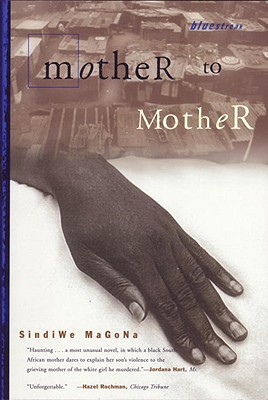 Mother to Mother (Bluestreak)
Mother to Mother (Bluestreak)
by Sindiwe MagonaBeacon Press (Sep 15, 2000)
Read Detailed Book Description
Sindiwe Magona’s novel Mother to Mother explores the South African legacy of apartheid through the lens of a woman who remembers a life marked by oppression and injustice. Magona decided to write this novel when she discovered that Fulbright Scholar Amy Biehl, who had been killed while working to organize the nation’s first ever democratic elections in 1993, died just a few yards away from her own permanent residence in Guguletu, Capetown. She then learned that one of the boys held responsible for the killing was in fact her neighbor’s son. Magona began to imagine how easily it might have been her own son caught up in the wave of violence that day. The book is based on this real-life incident, and takes the form of an epistle to Amy Biehl’s mother. The murderer’s mother, Mandisi, writes about her life, the life of her child, and the colonized society that not only allowed, but perpetuated violence against women and impoverished black South Africans under the reign of apartheid. The result is not an apology for the murder, but a beautifully written exploration of the society that bred such violence.
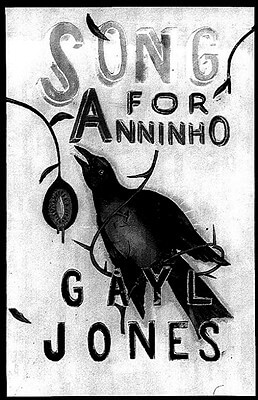 Song For Anninho
Song For Anninho
by Gayl JonesBeacon Press (Apr 30, 2000)
Read Detailed Book Description
This exquisite book-length poem is set in colonial Brazil, following the destruction of Palmares, the last of seven fugitive slave enclaves beset by the Portuguese. Amid the flight and reenslavement of its inhabitants emerges the love story of Anninho and Almeyda, former African slaves. Song for Anninho offers readers some of Gayl Jones’s very best verse.
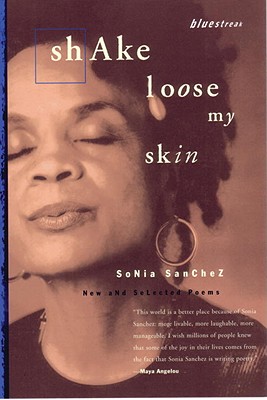 Shake Loose My Skin: New and Selected Poems (Bluestreak)
Shake Loose My Skin: New and Selected Poems (Bluestreak)
by Sonia SanchezBeacon Press (Apr 07, 2000)
Read Detailed Book Description
An extraordinary retrospective covering over thirty years of work, Shake Loose My Skin is a stunning testament to the literary, sensual, and political powers of the award-winning Sonia Sanchez.
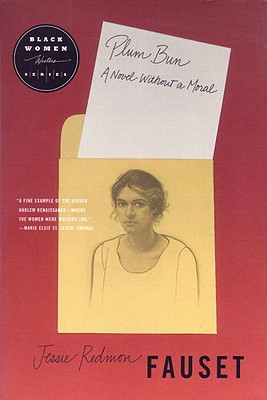 Plum Bun: A Novel Without a Moral
Plum Bun: A Novel Without a Moral
by Jessie Redmon FausetBeacon Press (Dec 15, 1999)
Read Detailed Book Description
Written in 1929 at the height of the Harlem Renaissance by one of the movement’s most important and prolific authors, Plum Bun is the story of Angela Murray, a young black girl who discovers she can pass for white. After the death of her parents, Angela moves to New York to escape the racism she believes
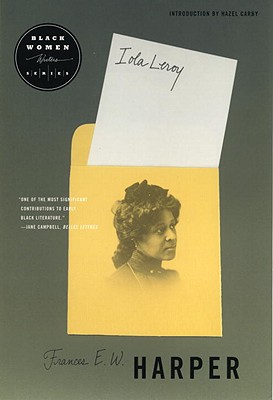 Iola Leroy
Iola Leroy
by Frances E. W. HarperBeacon Press (Dec 10, 1999)
Read Detailed Book Description
Iola Leroy was originally published in 1892, during a time of black disenfranchisement, lynching, and Jim Crow laws. It is the story of a "refined mulatto" raised to believe she’s white until she and her mother are sold into slavery. Iola becomes an outspoken advocate for her people and a critic of race-mixing. Her story offers an important portrait of black life during the Civil War and Reconstruction.
 Proud Shoes: The Story of an American Family
Proud Shoes: The Story of an American Family
by Pauli MurrayBeacon Press (Aug 01, 1999)
Read Detailed Book Description
First published in 1956, Proud Shoes is the remarkable true story of slavery, survival, and miscegenation in the South from the pre-Civil War era through the Reconstruction. Written by Pauli Murray, the legendary civil rights activist and one of the founders of NOW, Proud Shoes chronicles the lives of Murray’s maternal grandparents. From the birth of her grandmother, Cornelia Smith, daughter of a slave whose beauty incited the master’s sons to near murder, to the story of her grandfather Robert Fitzgerald, whose free Black father married a white woman in 1840, Proud Shoes offers a revealing glimpse of our nation’s history.
 A Strange Freedom: The Best of Howard Thurman on Religious Experience and Public Life
A Strange Freedom: The Best of Howard Thurman on Religious Experience and Public Life
by Howard ThurmanBeacon Press (Jul 01, 1999)
Read Detailed Book Description
A spiritual advisor to Martin Luther King, Jr.; the first Black dean at a white university; cofounder of the first interracially pastored, intercultural church in the United States, Howard Thurman offered a transcendent vision of our world. This lyrical collection of select published and unpublished works traces his struggle with the particular manifestations of violence and hatred that mark the twentieth century. His words remind us all that out of religious faith emerges social responsibility and the power to transform lives.
“This book [should] be in every household in the world in search of a spiritual foundation.” —The Reverend Jesse L. Jackson, Sr.
“Fortunate reader, if you have picked up this book, you have found, as the Bible says, a ‘pearl of great price.’ Take it home, read it, treasure it, and pass it on to a youth who needs its wisdom.” —Marian Wright Edelman, President, the Children’s Defense Fund
“An important collection…Howard Thurman speaks in this work on leadership, commitment, identity, dreams, peace—topics that are as apt to today’s readers as they were to readers of years past. It is a fitting tribute.” —Ebony
“This fine anthology makes available to a new generation the thought of one of the great theologians of the twentieth century. I strongly recommend it.” —James H. Cone, Briggs Distinguished Professor, Union Theological Seminary
Walter Earl Fluker is professor of philosophy and religion and executive director of the Leadership Center at Morehouse College and founder of VisionQuest Association, Inc.
Catherine Tumber is a fellow of the W.E.B. Du Bois Institute for African-American Research at Harvard University, and has taught history at the University of Rochester, St. Lawrence University, and Syracuse University.
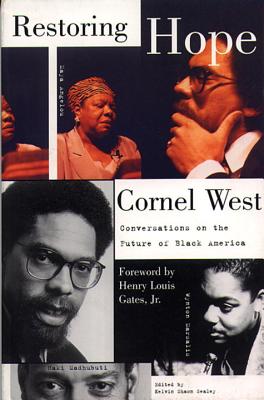 Restoring Hope: Conversations on the Future of Black America
Restoring Hope: Conversations on the Future of Black America
by Cornel WestBeacon Press (Jan 27, 1999)
Read Detailed Book Description
’Cornel West is one of the most authentic, brilliant, prophetic, and healing voices in America today’ —Marian Wright Edelman
Nine of America’s most influential artists, scholars, and public figures-Maya Angelou, Bill Bradley, Harry Belafonte, Patricia Williams, Wynton Marsalis, Charlayne Hunter-Gault, James Washington, James Forbes, and Haki Madhubuti-talk with Cornel West about their political awareness, art and politics, and the possibility of hope among African-Americans today.
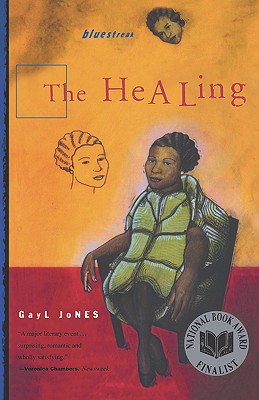 The Healing
The Healing
by Gayl JonesBeacon Press (Jan 01, 1999)
Read Detailed Book Description
Gayl Jones’s special gift is to shape experience and make it seem unshaped. -John Alfred Avant, The New Republic
Gayl Jones’s first novel, Corregidora, won her recognition as a writer whose work was gripping, subtle, and sure. It was praised, along with her second novel, Eva’s Man, by writers and critics from all over the nation: John Updike, Maya Angelou, John Edgar Wideman, and James Baldwin, to name a few. The publication of The Healing, her first novel in over twenty years, is a literary event.
Harlan Jane Eagleton is a faith healer, traveling by bus to small towns, converting skeptics, restoring minds and bodies. But before that she was a minor rock star’s manager, and before that a beautician. She’s had a fling with her rock star’s ex-husband and an Afro-German horse dealer; along the way she’s somehow lost her own husband, a medical anthropologist now traveling with a medicine woman in Africa. Harlan tells her story from the end backwards, drawing us constantly deeper into her world and the mystery at the heart of her tale-the story of her first healing.
The Healing is a lyrical and at times humorous exploration of the struggle to let go of pain, anger, and even love. Slipping seamlessly back through Harlan’s memories in a language rich with the textured cadences of the black Southerner, Gayl Jones weaves her story to its dramatic-and unexpected-beginning.
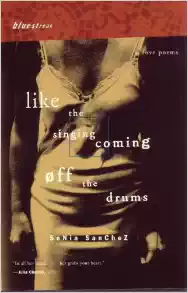 Like the Singing Coming off the Drums: Love Poems (Bluestreak)
Like the Singing Coming off the Drums: Love Poems (Bluestreak)
by Sonia SanchezBeacon Press (Jan 01, 1999)
Read Detailed Book Description
Like the Singing Coming off the Drums is a dazzling exploration of the intimate and public landscapes of passion from one of our master poets. In haiku, tanka, and sensual blues, Sonia Sanchez writes of the many forms love takes: burning, dreamy, disappointed, vulnerable. With words that revel and reveal, she shares love’s painful beauty.
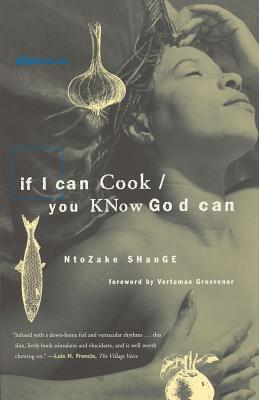 If I Can Cook/You Know God Can (Bluestreak Series)
If I Can Cook/You Know God Can (Bluestreak Series)
by Ntozake ShangeBeacon Press (Jan 01, 1999)
Read Detailed Book Description
Acclaimed artist Ntozake Shange offers this delightfully eclectic tribute to black cuisine as a food of life that reflects the spirit and history of a people. With recipes such as "Cousin Eddie’s Shark with Breadfruit" and "Collard Greens to Bring You Money," Shange instructs us in the nuances of a cuisine born on the slave ships of the Middle Passage, spiced by the jazz of Duke Ellington, and shared by all members of the African Diaspora. Rich with personal memories and historical insight, If I Can Cook/You Know God Can is a vivid story of the migration of a people, and the cuisine that marks their living legacy and celebration of taste.
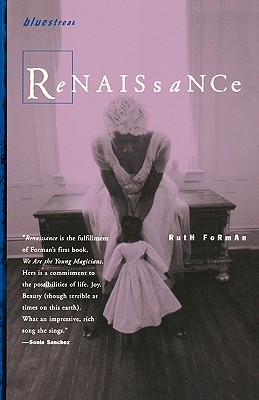 Renaissance
Renaissance
by Ruth FormanBeacon Press (Dec 30, 1998)
Read Detailed Book Description
Renaissance, Ruth Forman’s second collection, speaks of the timeless themes of family, death, love, and rebirth in the inimitable voice Booklist called ’sexy, bittersweet, funny, feisty, and real.’ With poetry that conveys a defiant, enlivened spirit and has won her acclaim, Ruth Forman measures the losses and celebrates the future of a generation.
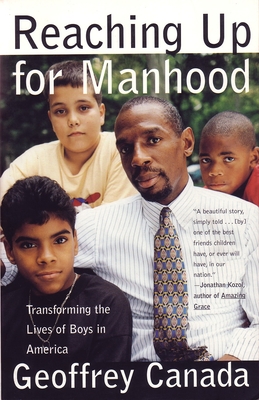 Reaching Up for Manhood: Transforming the Lives of Boys in America
Reaching Up for Manhood: Transforming the Lives of Boys in America
by Geoffrey CanadaBeacon Press (Dec 10, 1998)
Read Detailed Book Description
Geoffrey Canada explores, through passionately observed storytelling, what we are truly telling our boys about manhood. He lays out the little-understood and intertwined history of drugs and marketing to inner-city boys, a history that has led to consumption levels of forties and blunts that are excessive beyond excuse. Canada takes a hard look at the issues of too-early sex and, through a pointed story of his own sexual education on the streets, reminds us that the combination of the same old urges with new cultural forces and mores has resulted in a volatile sexual terrain for boys. He writes indelibly of the young boy he once was, one desperately needing a father’s love, and of the crucial issues—fatherhood, mentors, self-esteem, faith, healing, and more—that must be negotiated as boys reach up for manhood. A moving and revelatory report by a dedicated father and gifted child advocate.
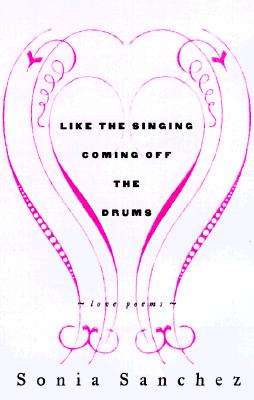 Like the Singing Coming off the Drums
Like the Singing Coming off the Drums
by Sonia SanchezBeacon Press (Feb 03, 1998)
Read Detailed Book Description
In the movie "lovejones", in "Vibe" magazine, and on rapper D-Knowledge’s CD, Sonia Sanchez’s love poems have put into words the passions of a generation. Now comes a collection of new love poems from Sanchez, dedicated to such icons of our age as Tupac Shakur and Ella Fitzgerald, that takes readers from the most intimate landscapes of passion to its public celebration National ads & publicity. .
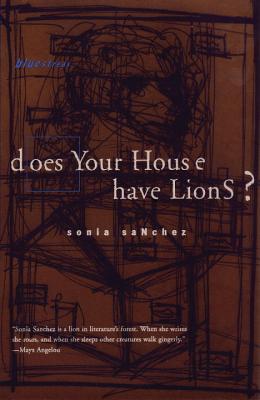 Does Your House Have Lions ?
Does Your House Have Lions ?
by Sonia SanchezBeacon Press (Jan 28, 1998)
Read Detailed Book Description
Nominated for the 1998 National Book Critics Circle Award for Poetry
Recommended Reading from Emerge
An epic poem on kin estranged, the death of a brother from AIDS, and the possibility of reconciliation and love in the face of loss.
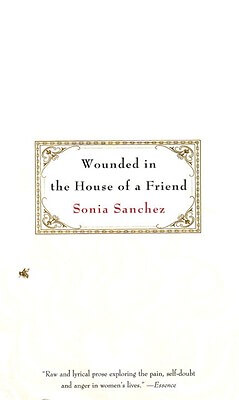 Wounded in the House of A Friend (Bluestreak)
Wounded in the House of A Friend (Bluestreak)
by Sonia SanchezBeacon Press (Apr 30, 1997)
Read Detailed Book Description
Renowned African-American poet Sonia Sanchez explores the pain, self-doubt, and anger that emerge in women’s lives: an unfaithful life partner, a brutal rape, the murder of a woman by her granddaughter, the ravages of drugs. Sanchez transforms the unspoken and sometimes violent betrayals of our lives into a liberating vision of connection in emotional redemption, compassion, and self-fulfillment.
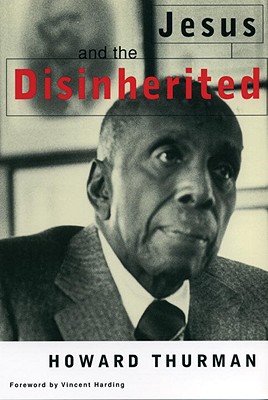 Jesus and the Disinherited
Jesus and the Disinherited
by Howard ThurmanBeacon Press (Nov 30, 1996)
Read Detailed Book Description
In this classic theological treatise, the acclaimed theologian and religious leader Howard Thurman (1900-1981) demonstrates how the gospel may be read as a manual of resistance for the poor and disenfranchised. Jesus is a partner in the pain of the oppressed and the example of His life offers a solution to ending the descent into moral nihilism. Hatred does not empower—it decays. Only through self-love and love of one another can God’s justice prevail.
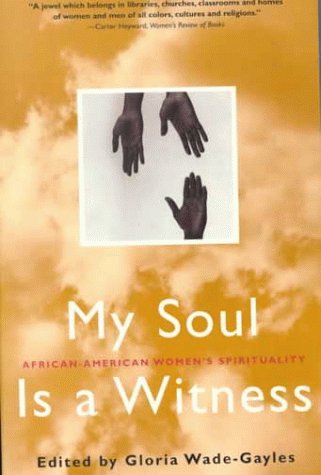 My Soul is a Witness: African-American Womenís Spirituality
My Soul is a Witness: African-American Womenís Spirituality
by Gloria Wade-GaylesBeacon Press (Oct 30, 1996)
Read Detailed Book Description
My Soul Is a Witness is a powerful collection of poetry, prose, reflections, prayer, and song celebrating spirituality in the lives of African-American women.
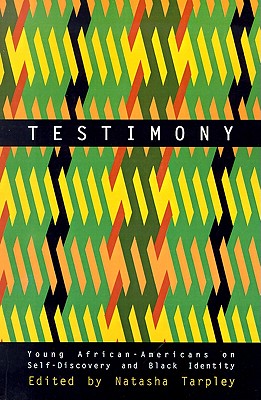 Testimony: Young African-Americans on Self-Discovery and Black Identity
Testimony: Young African-Americans on Self-Discovery and Black Identity
by Natasha Anastasia TarpleyBeacon Press (Jan 31, 1995)
Read Detailed Book Description
What exactly is goodness? Where is it found in the literary imagination? Toni Morrison, one of American letters’ greatest voices, pondered these perplexing questions in her celebrated Ingersoll Lecture, delivered at Harvard University in 2012 and published now for the first time.
Perhaps because it is overshadowed by the more easily defined evil, goodness often escapes our attention. Recalling many literary examples, from Ahab to Coetzee’s Michael K, Morrison seeks the essence of goodness and ponders its significant place in her writing. She considers the concept in relation to unforgettable characters from her own works of fiction and arrives at conclusions that are both eloquent and edifying. In a lively interview conducted for this book, Morrison further elaborates on her lecture’s ideas, discussing goodness not only in literature but in society and history—particularly black history, which has responded to centuries of brutality with profound creativity.
Morrison’s essay is followed by a series of responses by scholars in the fields of religion, ethics, history, and literature to her thoughts on goodness and evil, mercy and love, racism and self-destruction, language and liberation, together with close examination of literary and theoretical expressions from her works. Each of these contributions, written by a scholar of religion, considers the legacy of slavery and how it continues to shape our memories, our complicities, our outcries, our lives, our communities, our literature, and our faith. In addition, the contributors engage the religious orientation in Morrison’s novels so that readers who encounter her many memorable characters such as Sula, Beloved, or Frank Money will learn and appreciate how Morrison’s notions of goodness and mercy also reflect her understanding of the sacred and the human spirit.
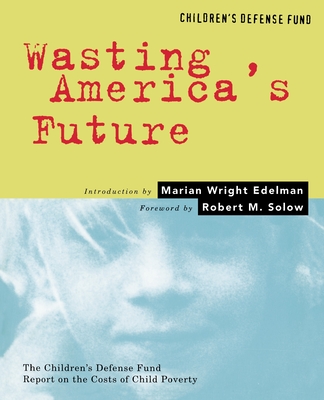 Wasting Americaís Future: The Childrenís Defense Fund Report on the Costs of Child Poverty
Wasting Americaís Future: The Childrenís Defense Fund Report on the Costs of Child Poverty
by Marian Wright EdelmanBeacon Press (Oct 31, 1994)
Read Detailed Book Description
The Health and Human Services poverty line for a three-person family in America is $11,800 in annual income. One in every five American children is growing up in poverty. What does child poverty mean for the economic and societal future of our country? The Children's Defense Fund, widely considered the most powerful force for children in America, has assembled expert and ground-breaking information on how poverty affects health, childhood deaths, low birth weight, and injury; on the insidious connections between low family income and learning disabilities; on links between poverty, abuse, and neglect and self-esteem; and much more. Wasting America's Future is the crucial citizen's handbook as we continue the national debate on welfare reform.
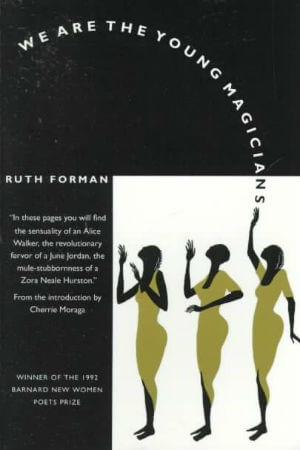 We Are Young Magicians
We Are Young Magicians
by Ruth FormanBeacon Press (Apr 01, 1993)
Read Detailed Book Description
Winner of the 1992 Barnard New Women Poets Prize
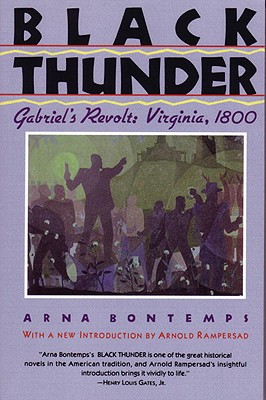 Black Thunder: Gabrielís Revolt: Virginia, 1800
Black Thunder: Gabrielís Revolt: Virginia, 1800
by Arna BontempsBeacon Press (Apr 01, 1992)
Read Detailed Book Description
’Gabriel Prosser’s 1800 slave revolt allowed Bontemps to warn of the rebellion that would come of poverty and racial oppression. This metaphor of revolution is at the same time a highly pertinent representation of black masculinity that will reward students of gender, slavery and the sensibilities of the 1930s.’
-Nell Irvin Painter
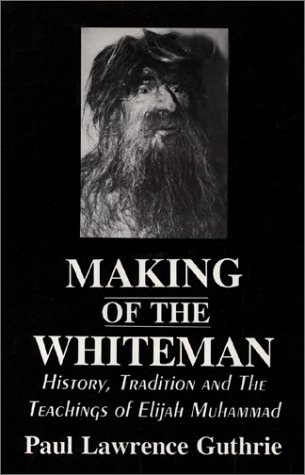 Making of the Whiteman: History, Tradition and the Teachings of Elijah Muhammad
Making of the Whiteman: History, Tradition and the Teachings of Elijah Muhammad
by Paul Lawrence GuthrieBeacon Press (Jan 01, 1992)
Read Detailed Book Description
Teaching of Elijah Muhammad
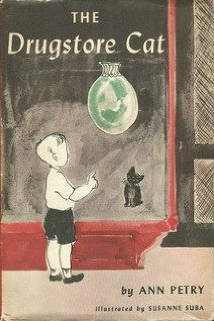 Drugstore Cat
Drugstore Cat
by Ann PetryBeacon Press (Sep 01, 1988)
Read Detailed Book Description
A little cat with a short temper tries to learn the difficult lesson of patience and self-restraint.
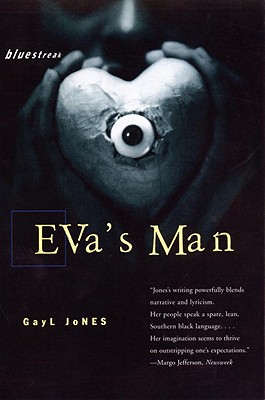 Evaís Man
Evaís Man
by Gayl JonesBeacon Press (Mar 05, 1987)
Read Detailed Book Description
Imprisoned for the bizarre murder of her lover, Eva Medina Canada recalls a life tormented by sexual abuse and emotional violence. Eva’s Man is Gayl Jones’s second novel.
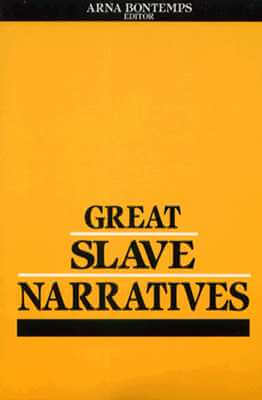 Great Slave Narratives
Great Slave Narratives
by Arna BontempsBeacon Press (Jan 30, 1987)
Read Detailed Book Description
Great Slave Narratives is a Beacon Press publication.
East of Broadway
by Raquel CepedaBeacon Press (Jan 01, 1970)
Read Detailed Book Description
Publication date to be determined.
East of Broadway, is a collection of collection of interconnected essays about Cepeda’s beloved Inwood, considered the last working-class enclave in Manhattan. The book explores the shifting process of gentrification through the prism of Cepeda’s life as a native dominiyorker and lifelong resident. Cepeda straddles the line between the gentry and gentrified, Black and white America, and her own hyphenated identity, while being quite literally and spiritually located at the invisible border wall dividing the neighborhood between east and west of Broadway. The book will explore belonging, what it means to be authentic, embracing change, and the spiritual and tangible consequences of gentrification that threatens to eat away at the soul of a once piquant and diverse community.

